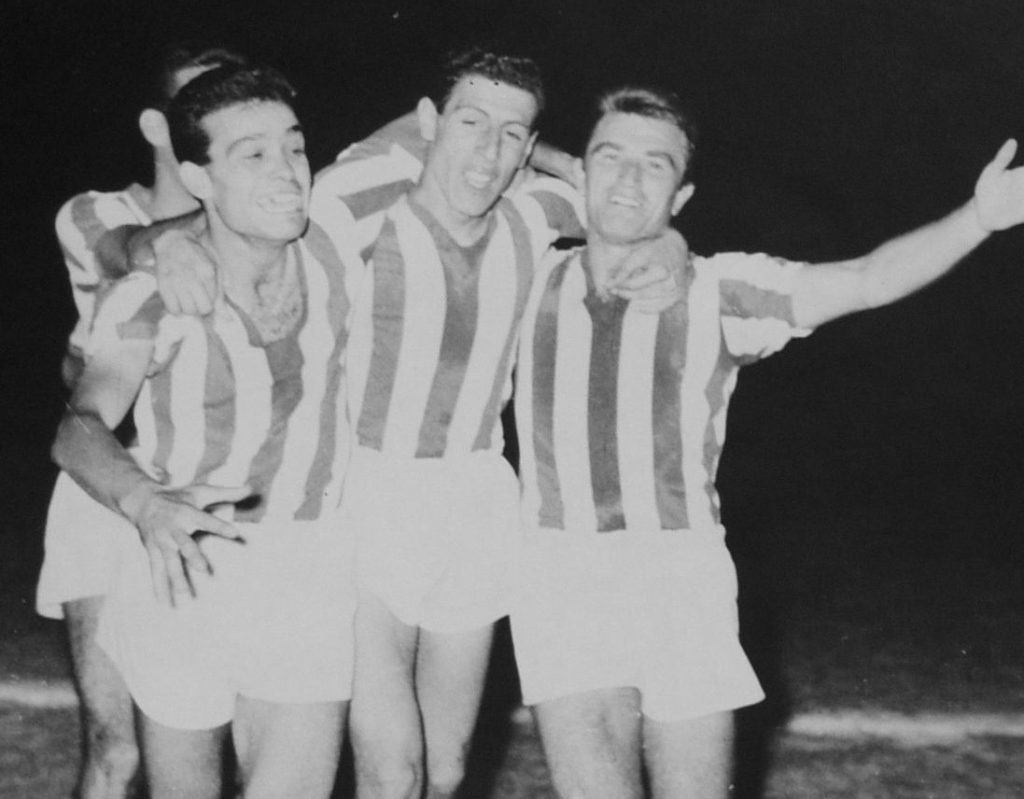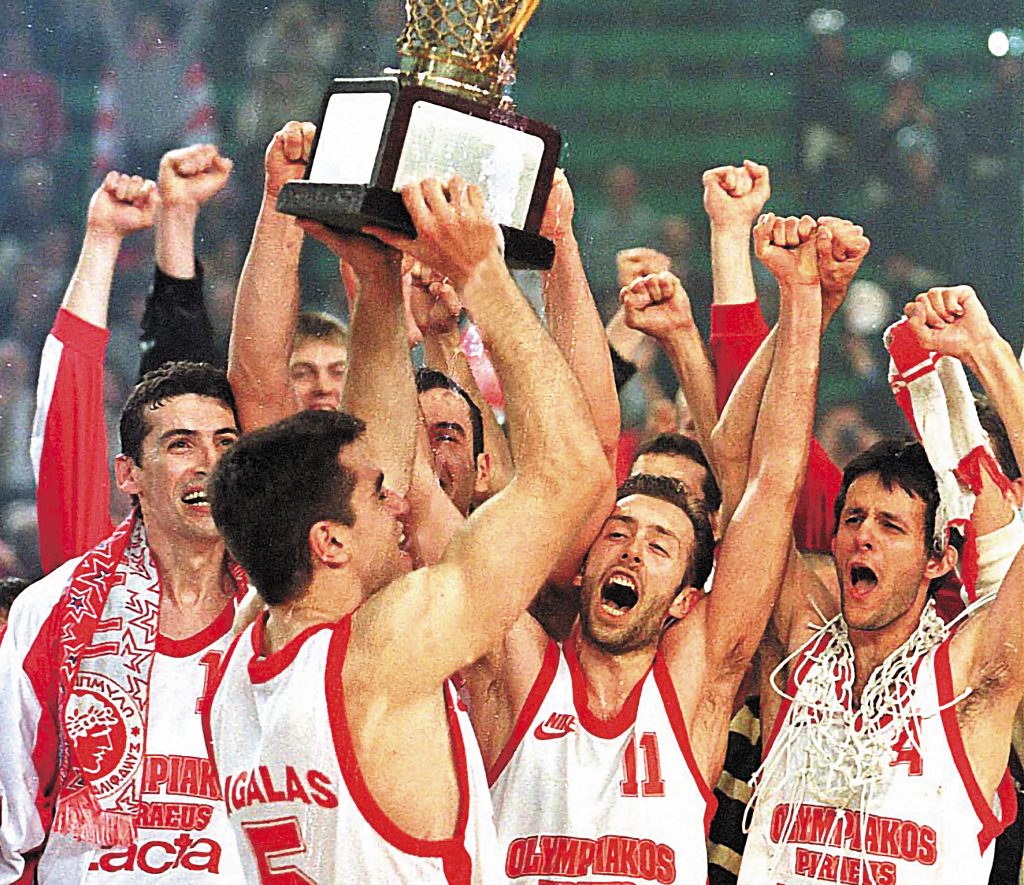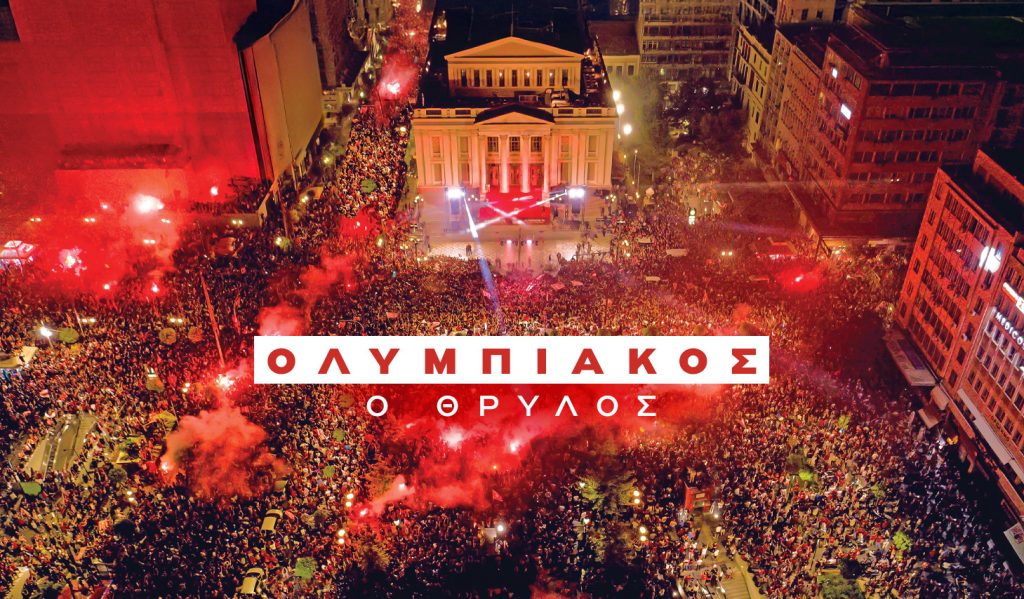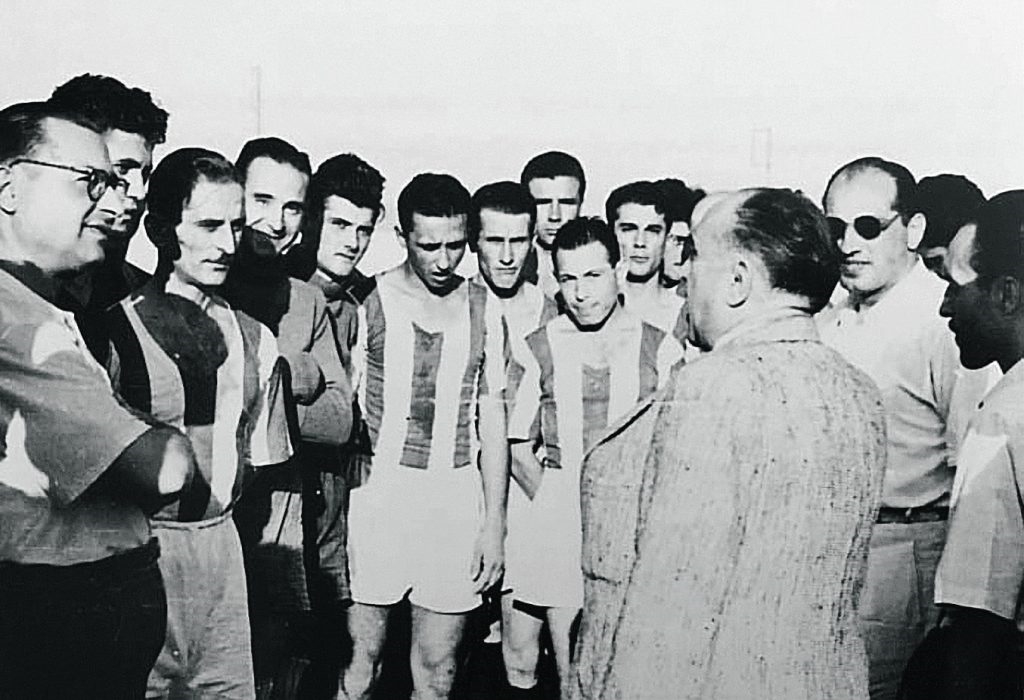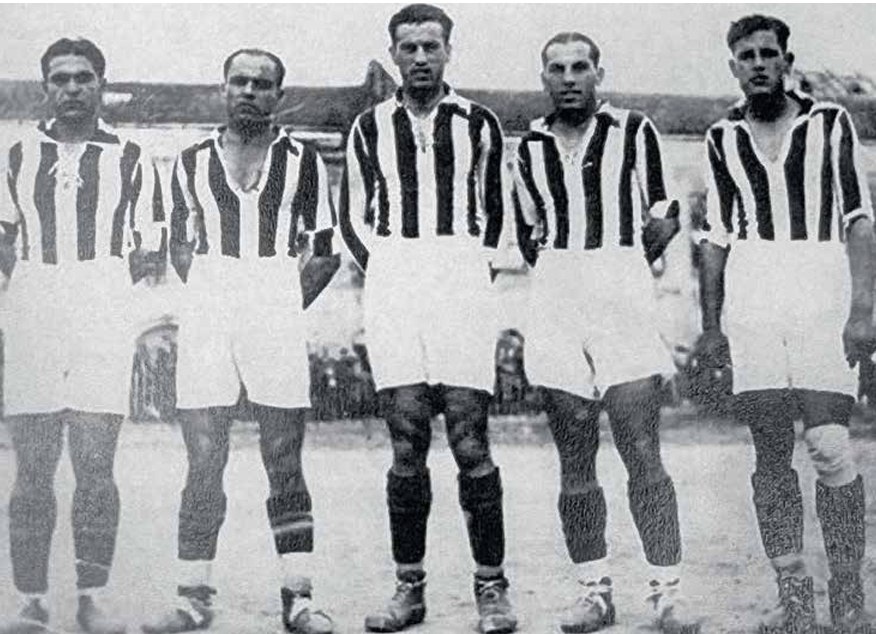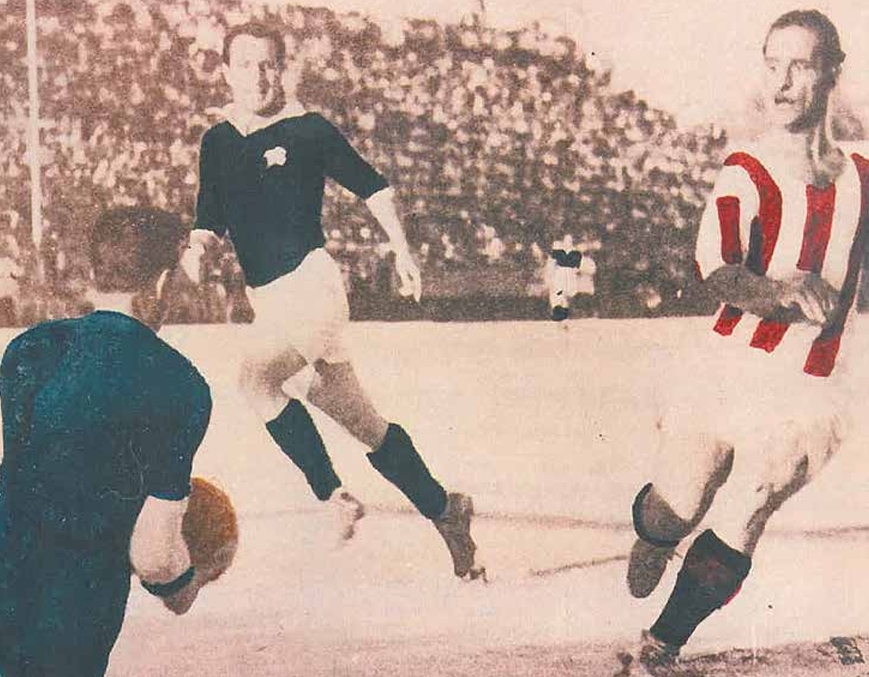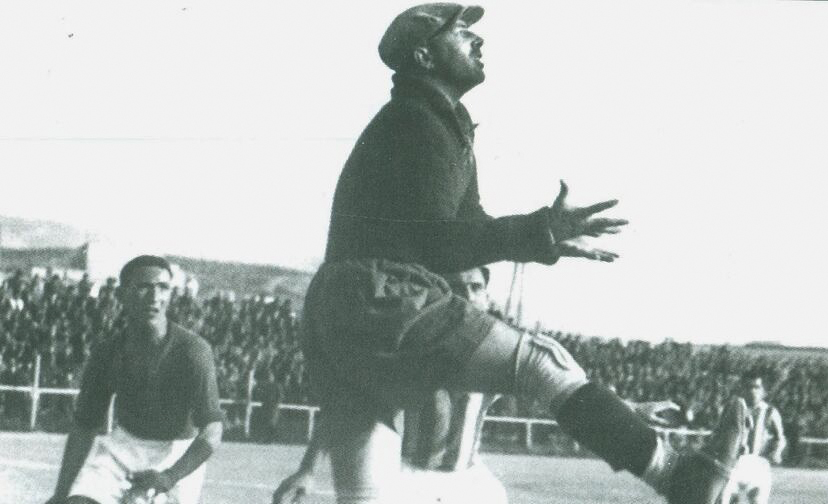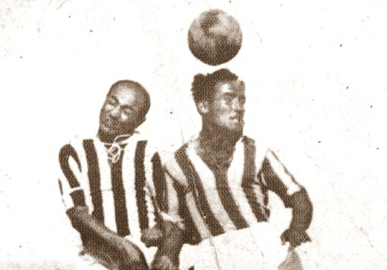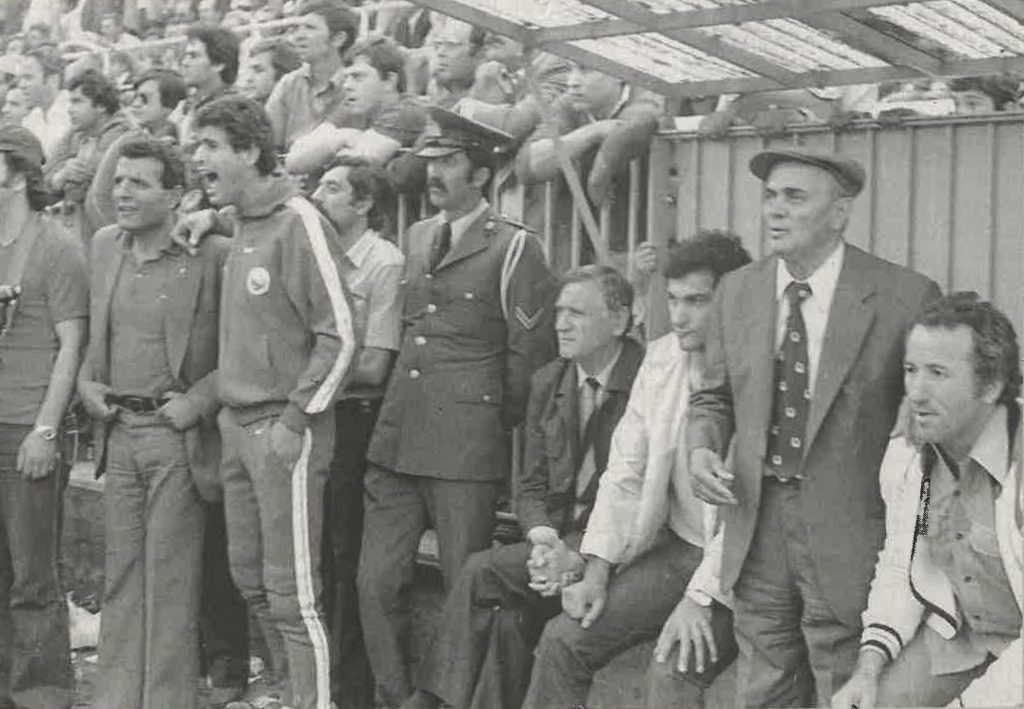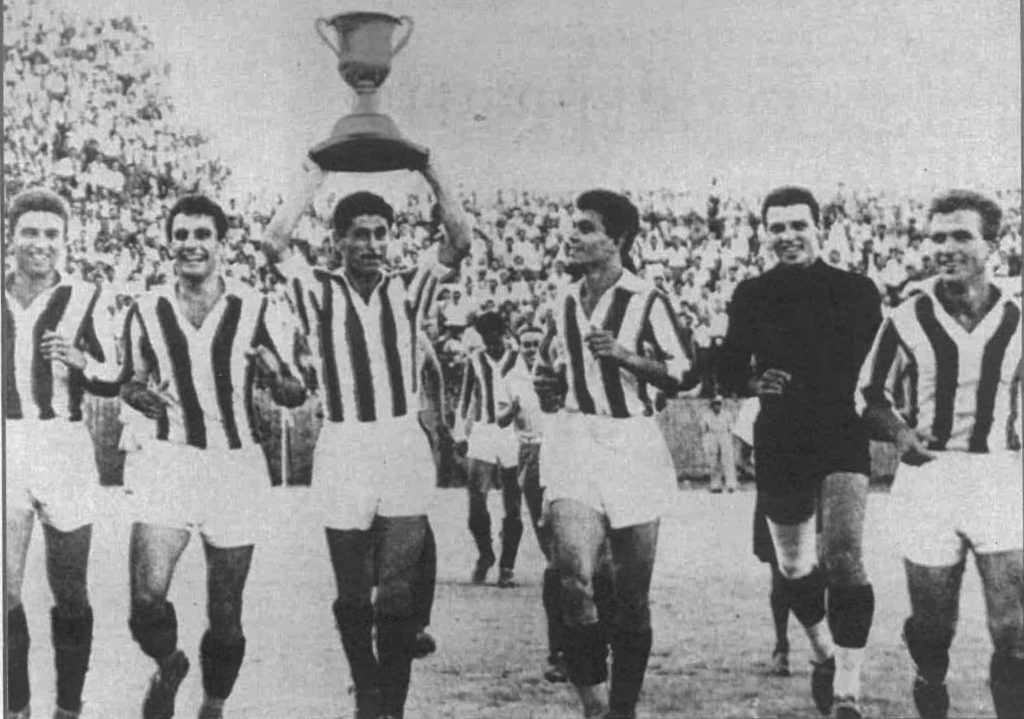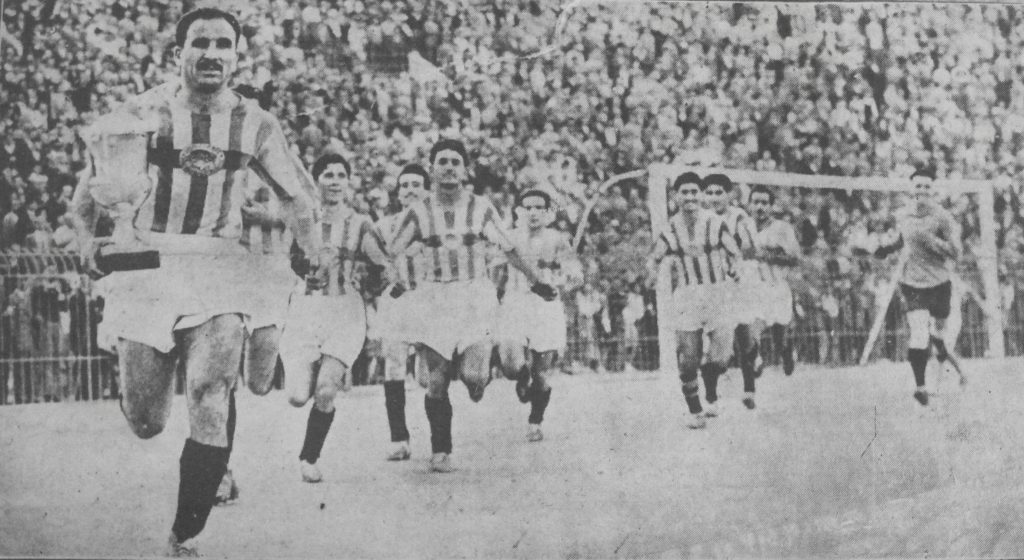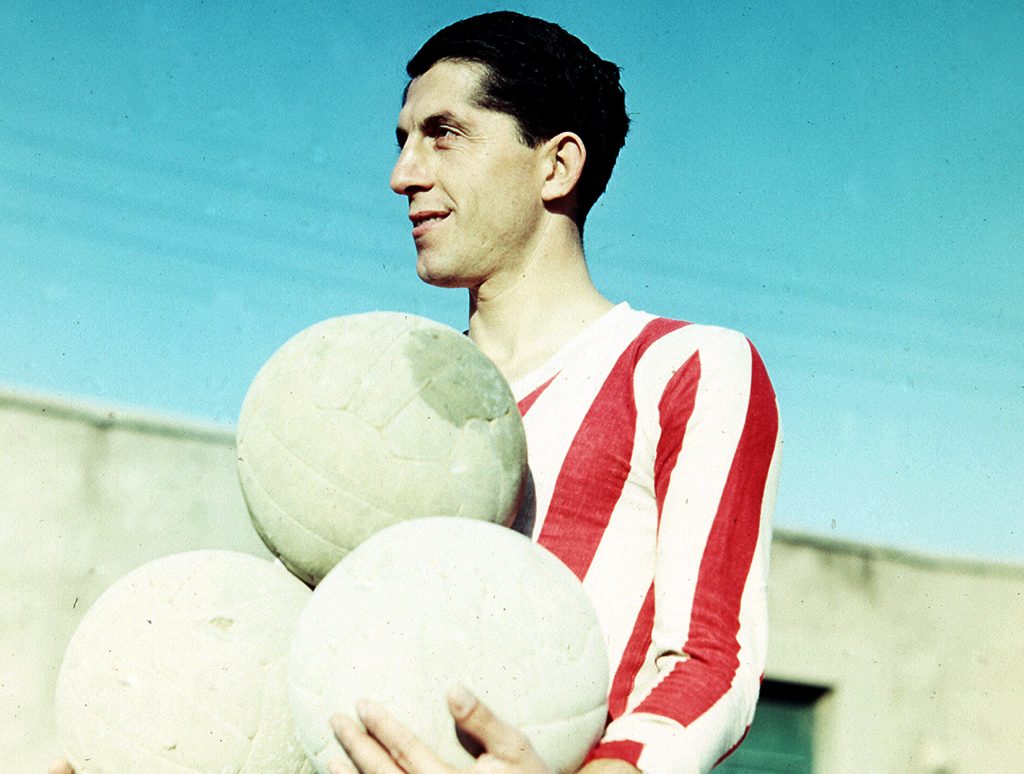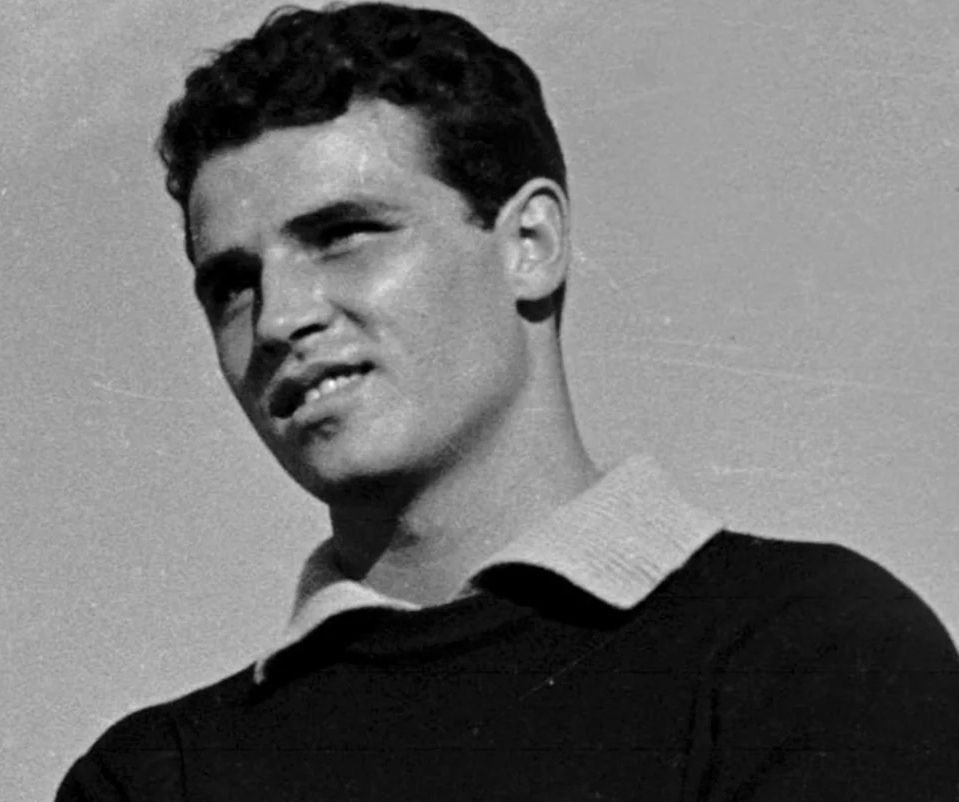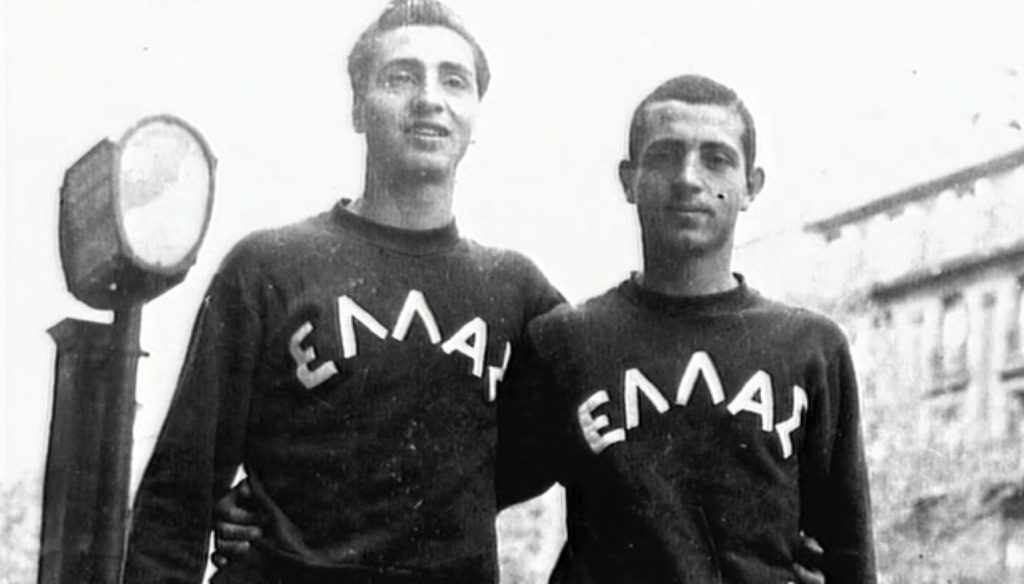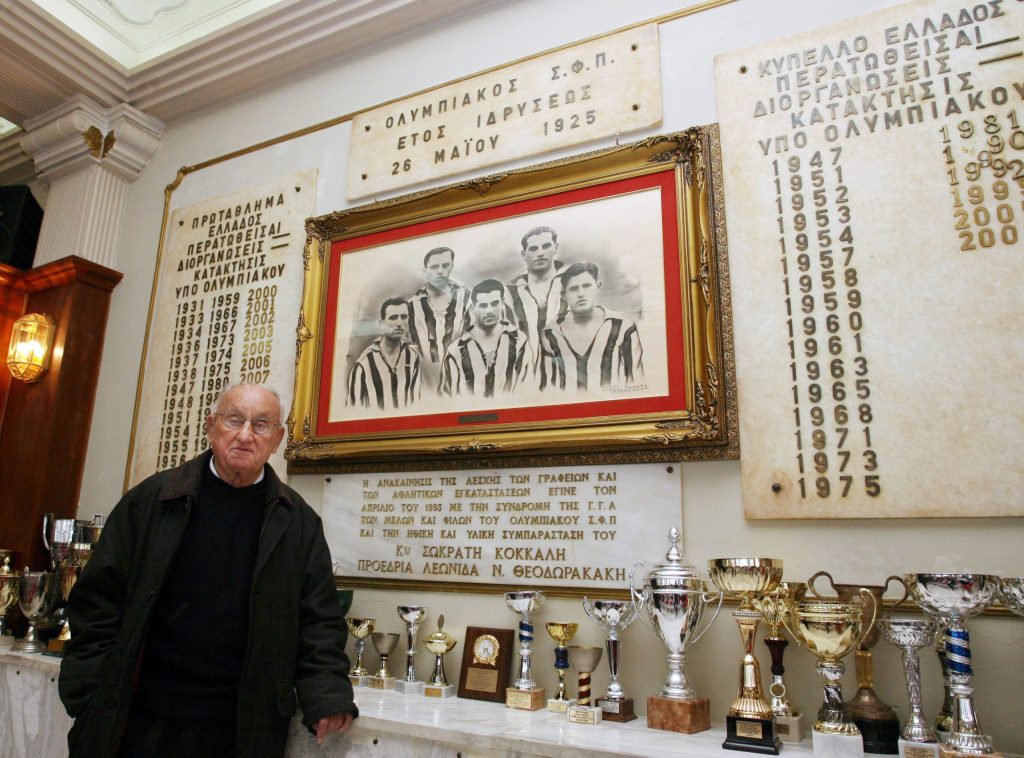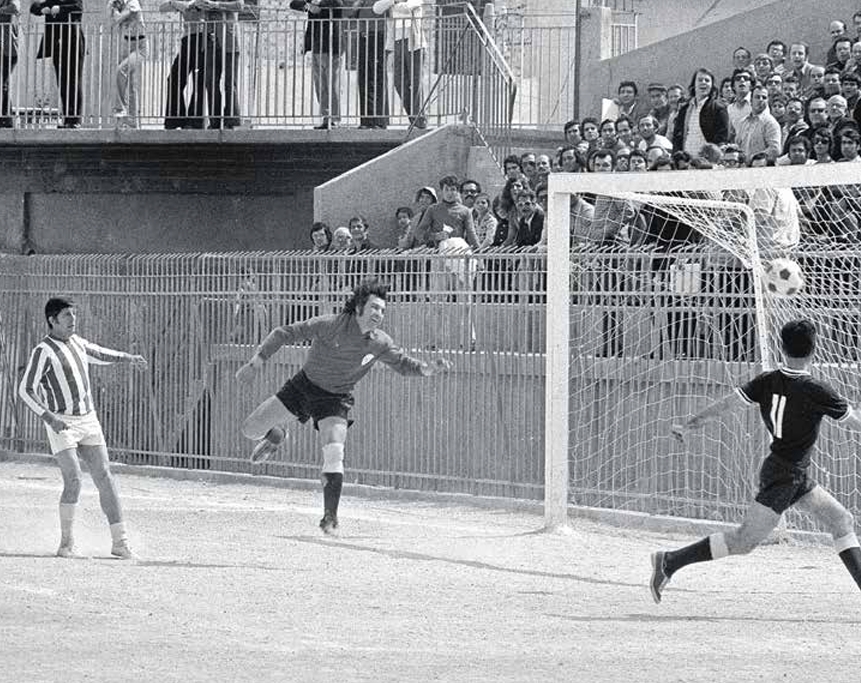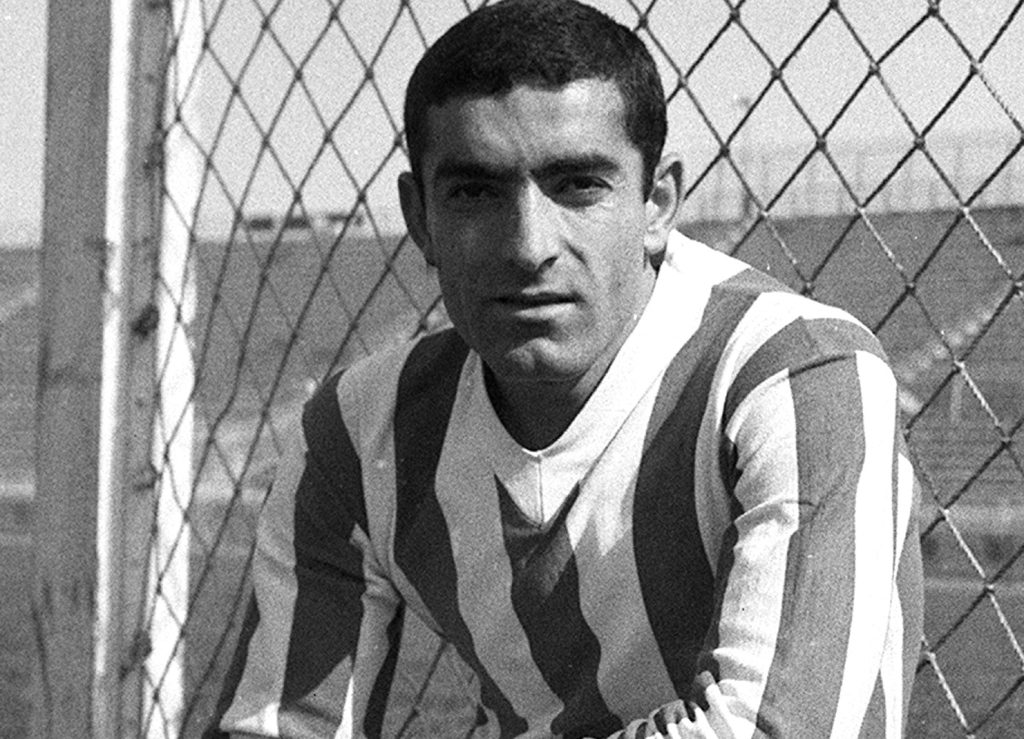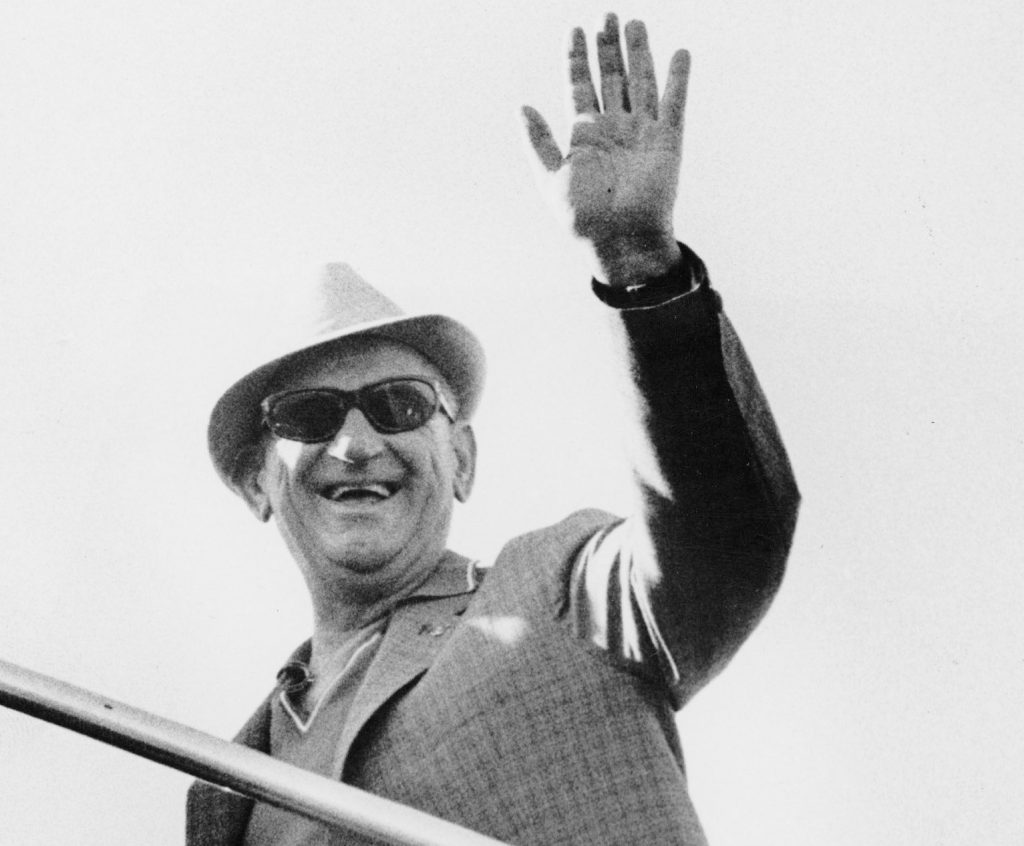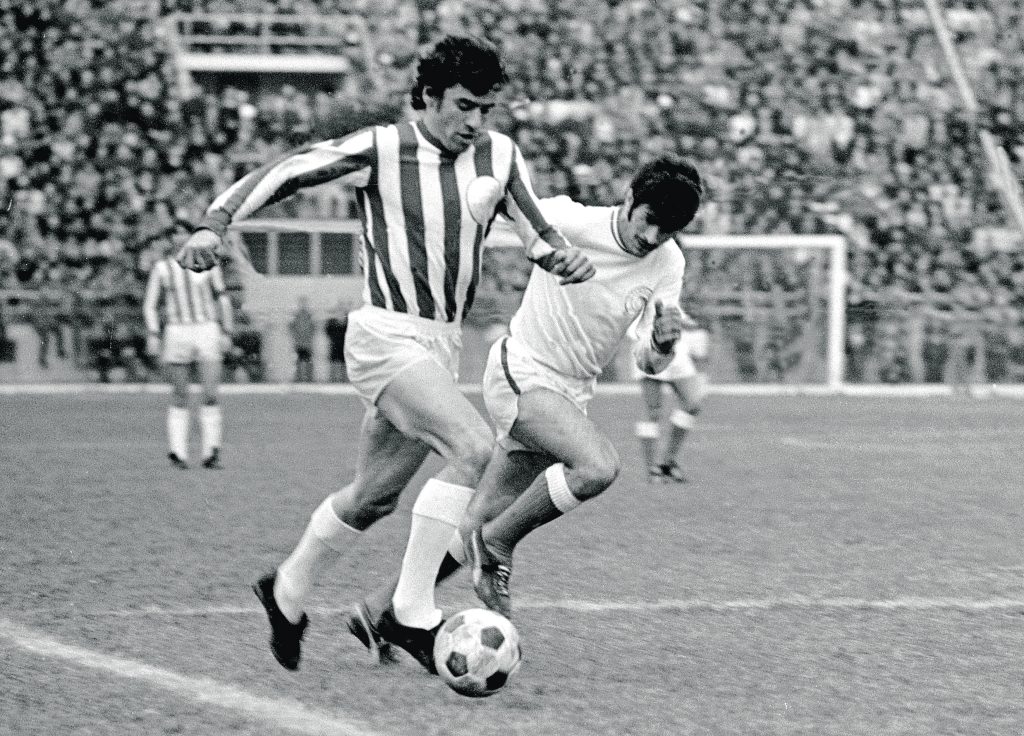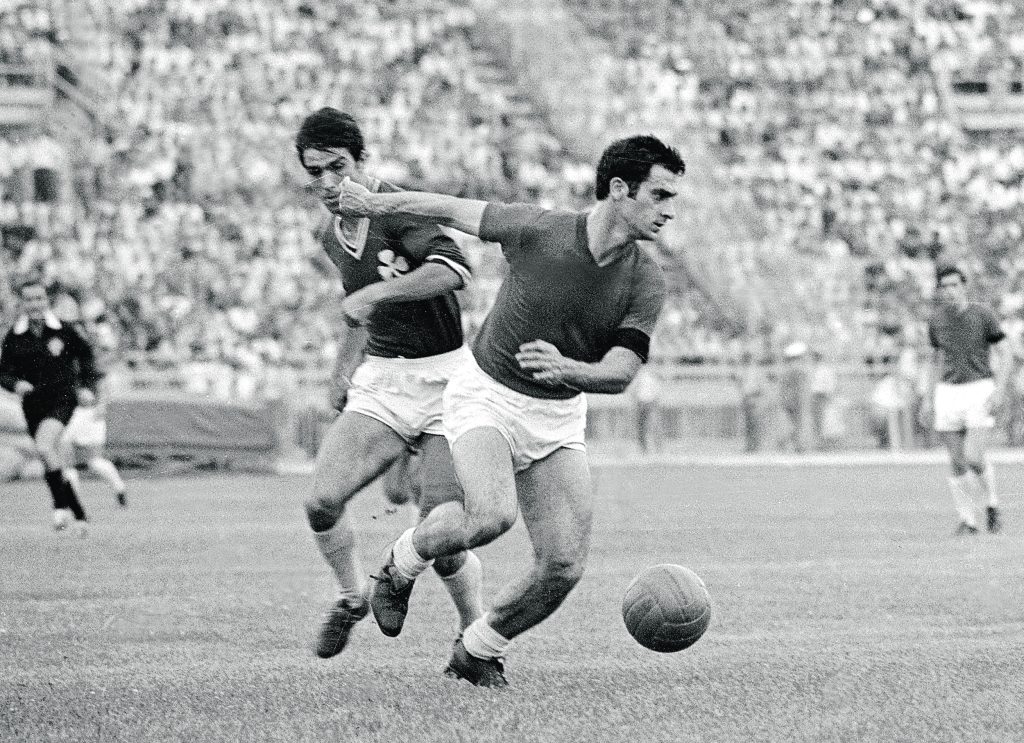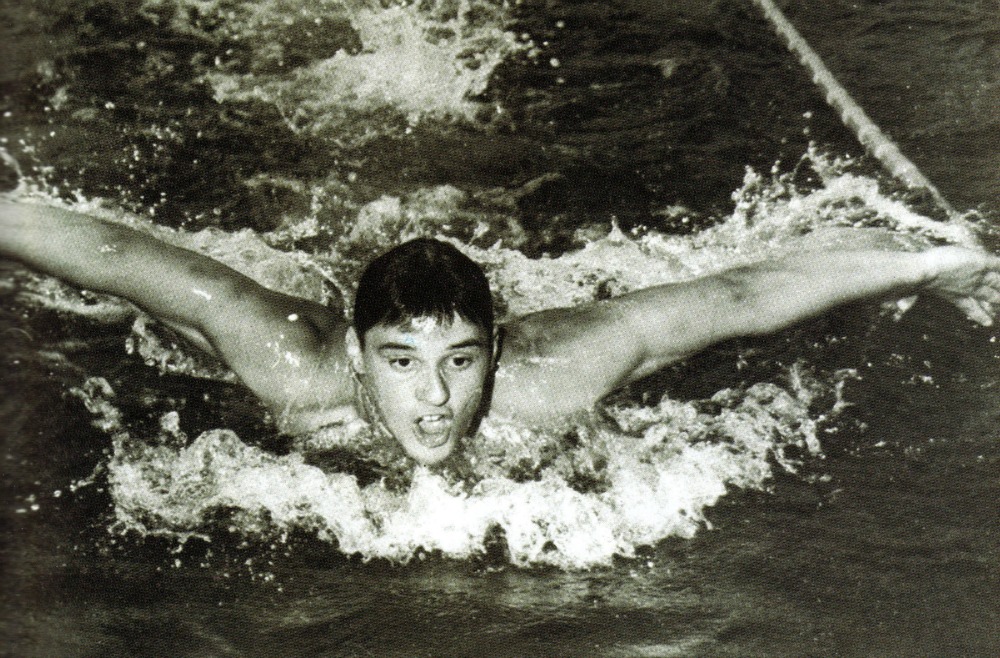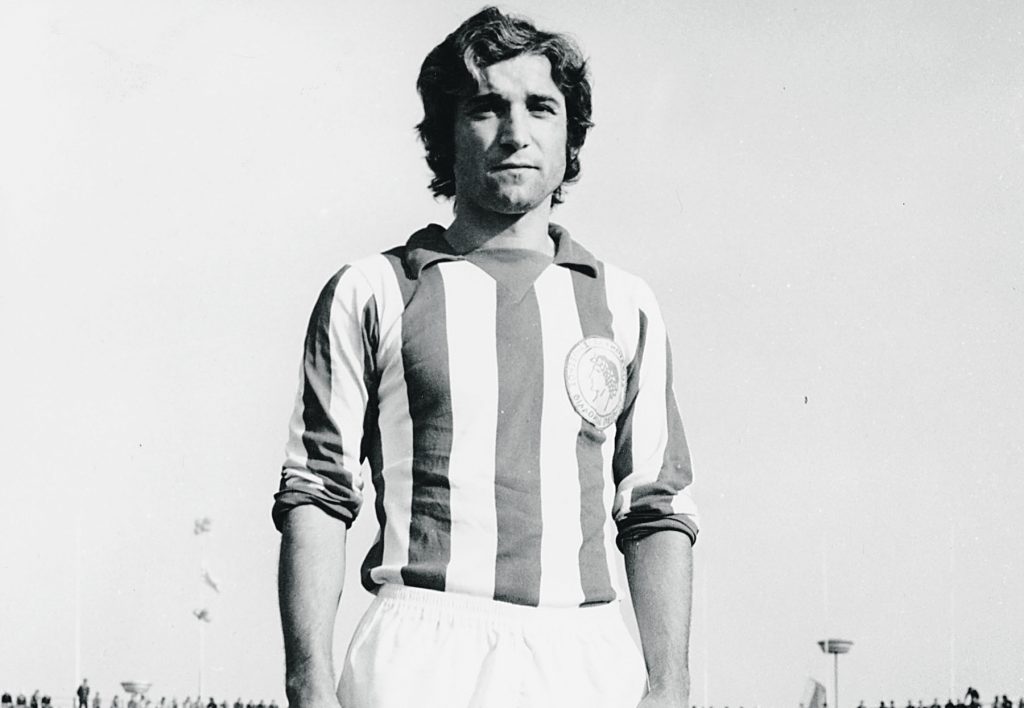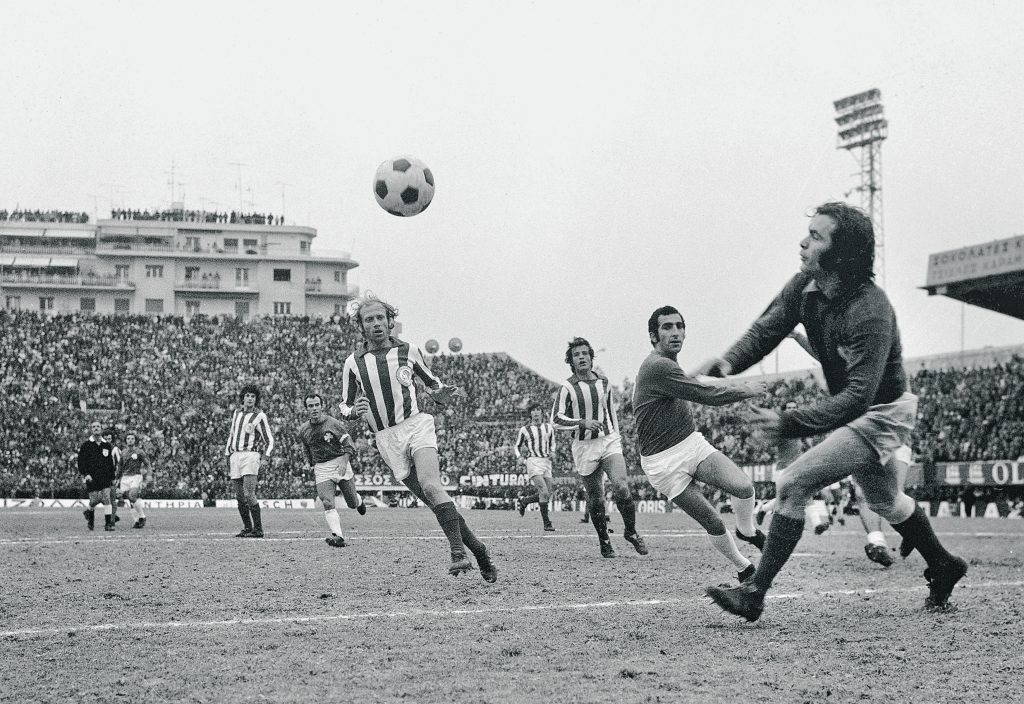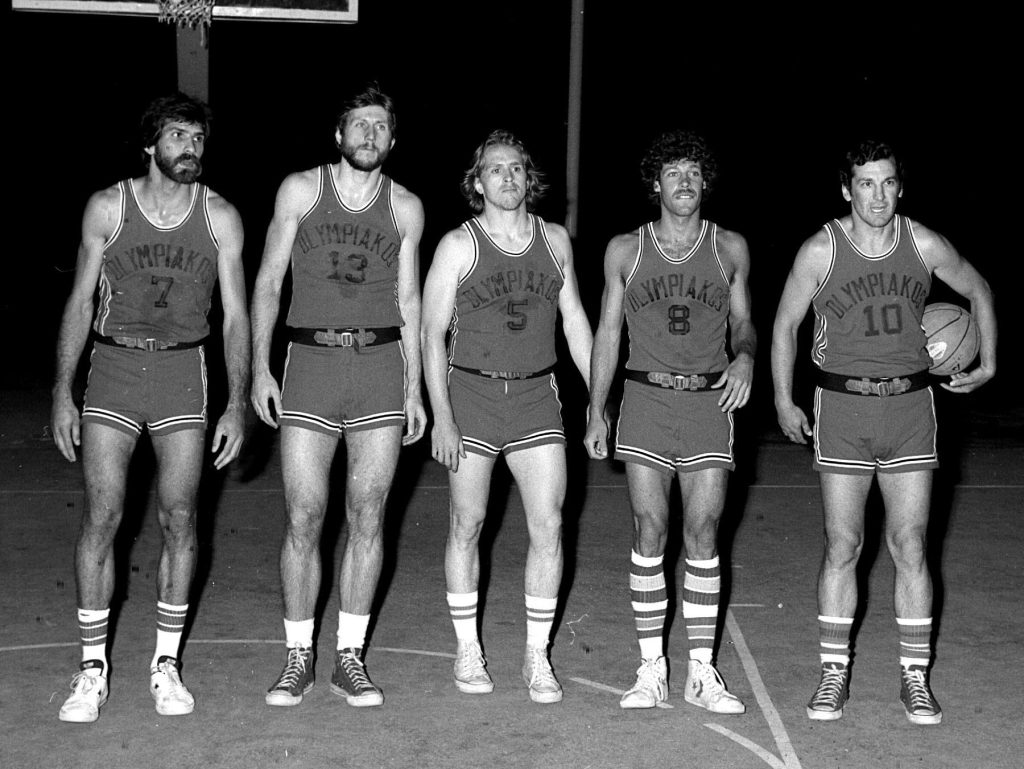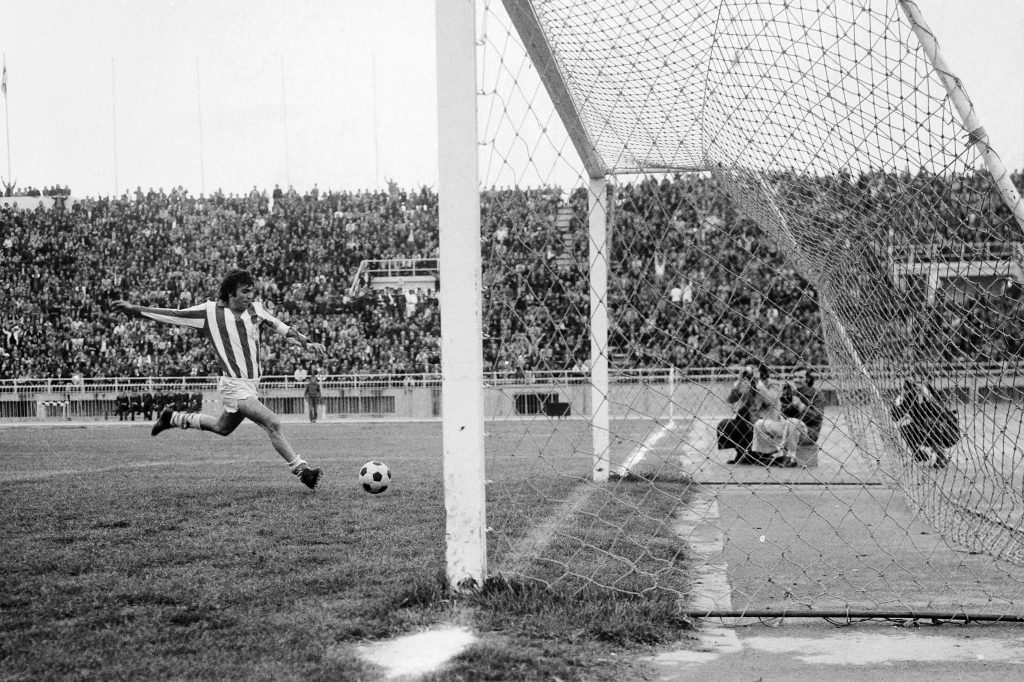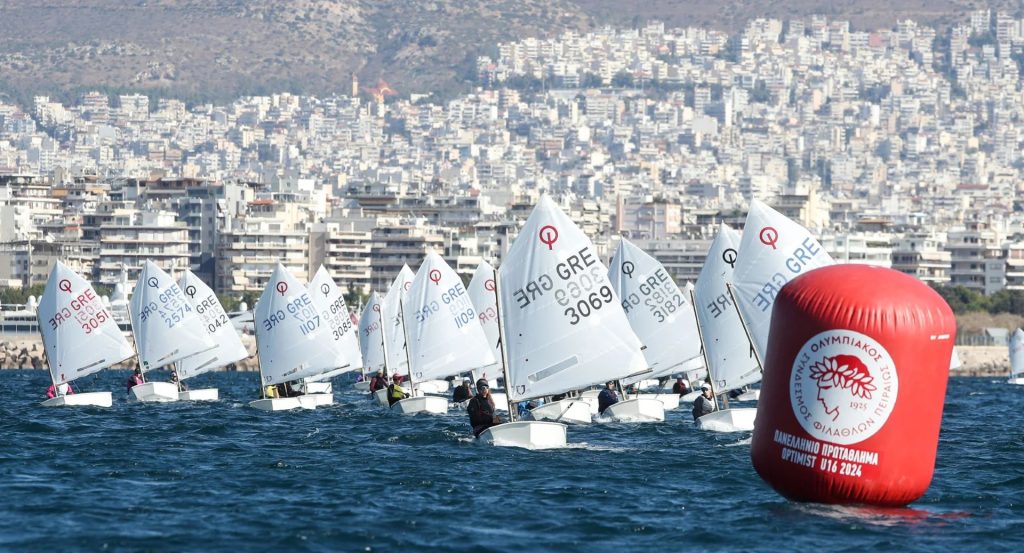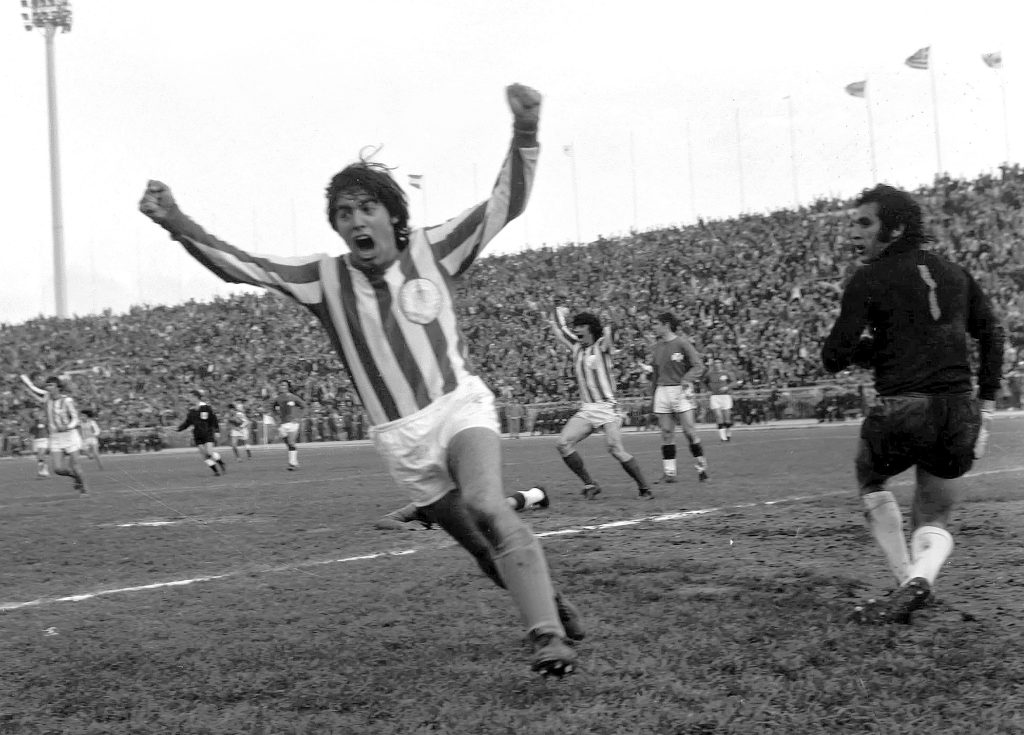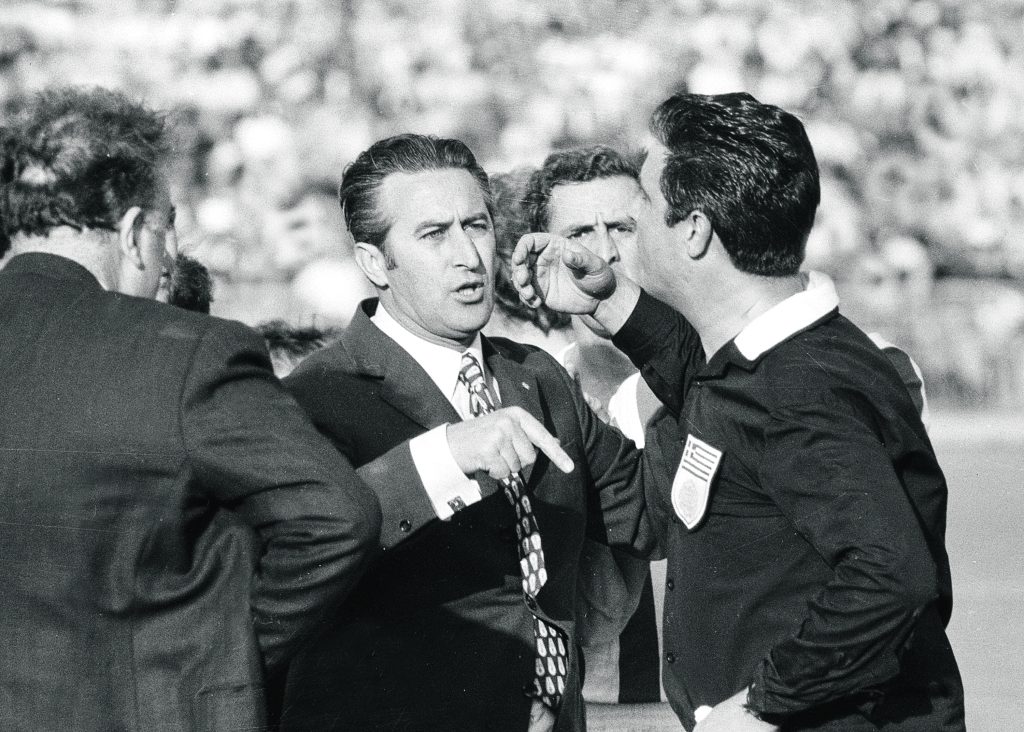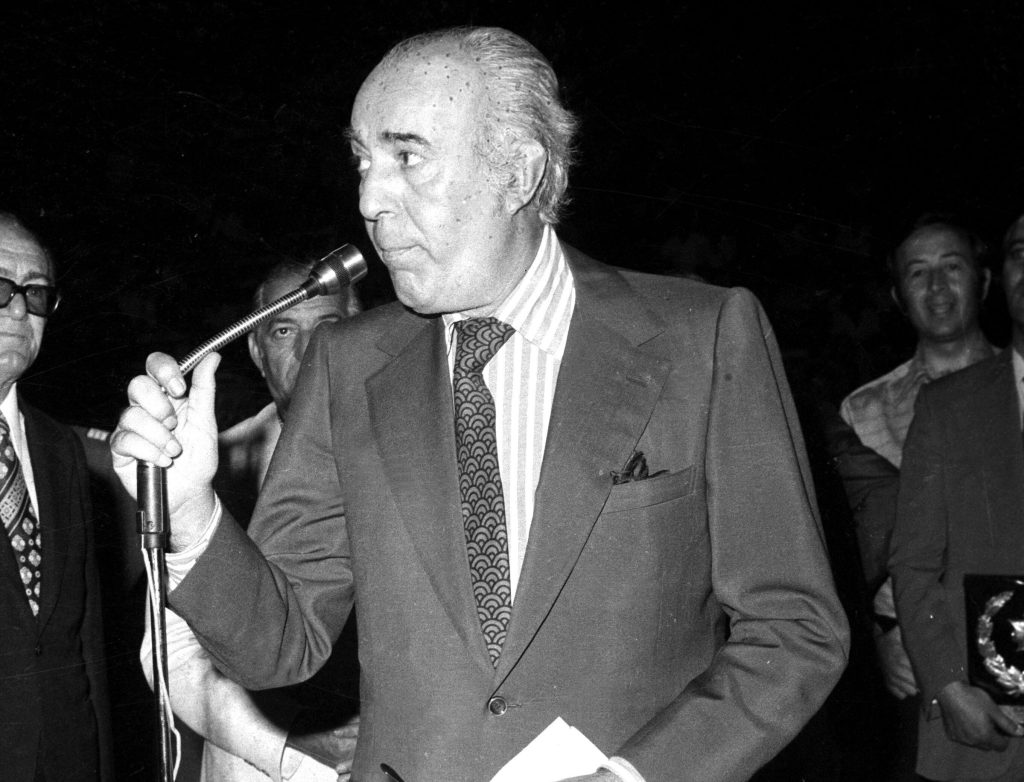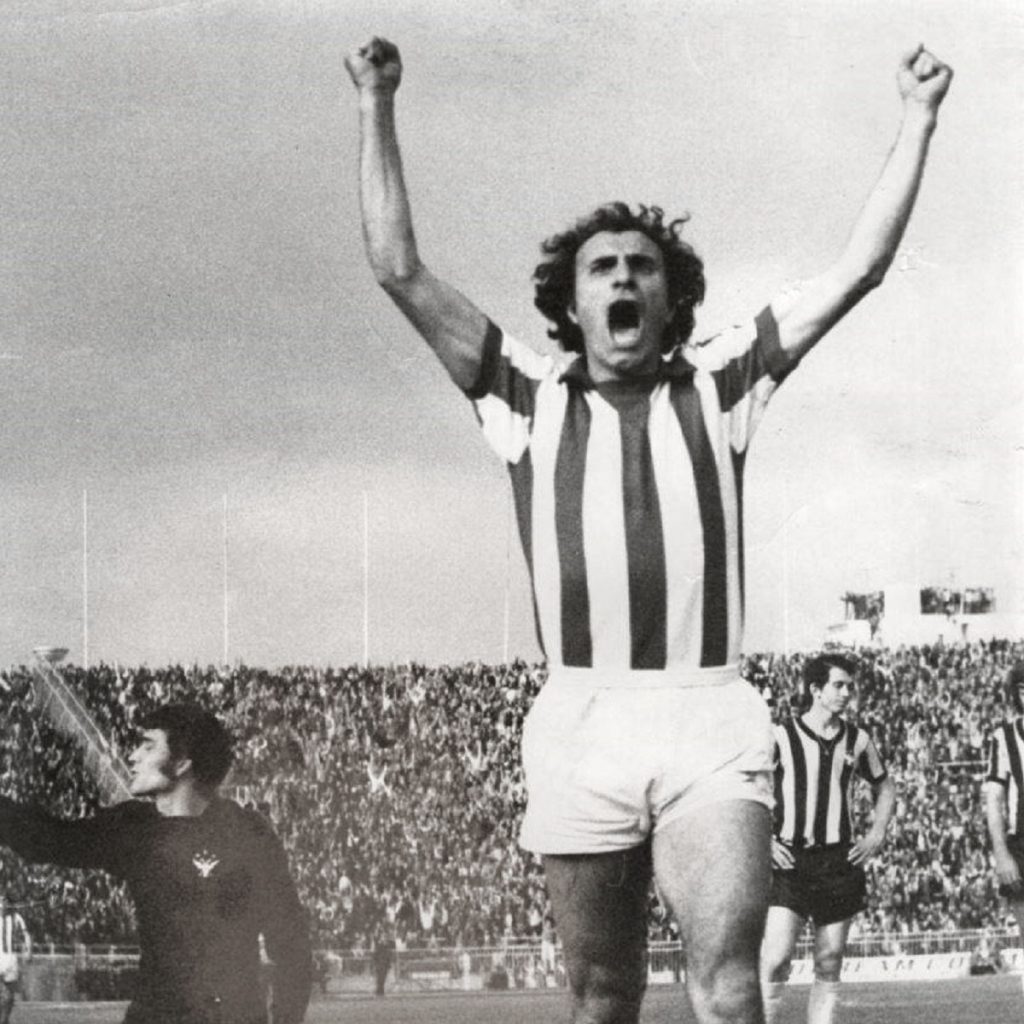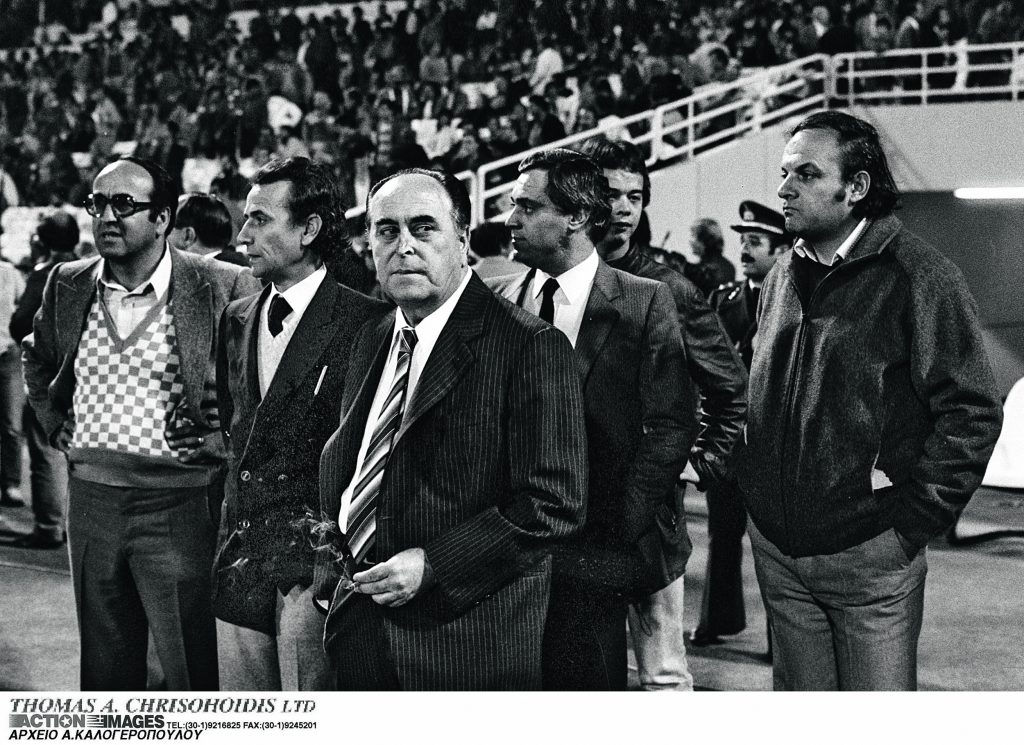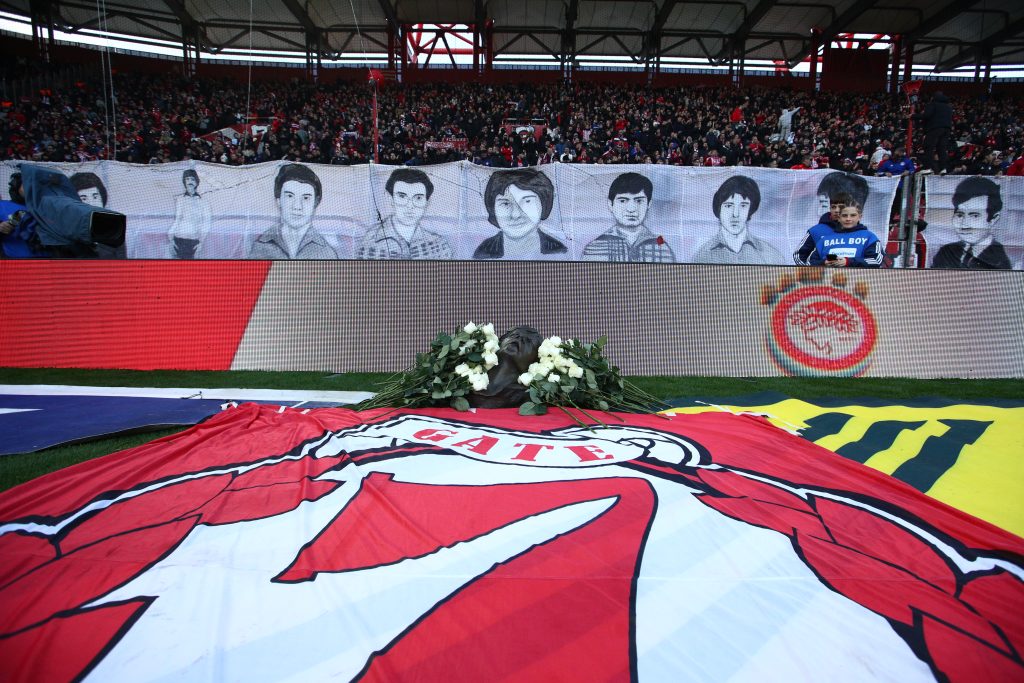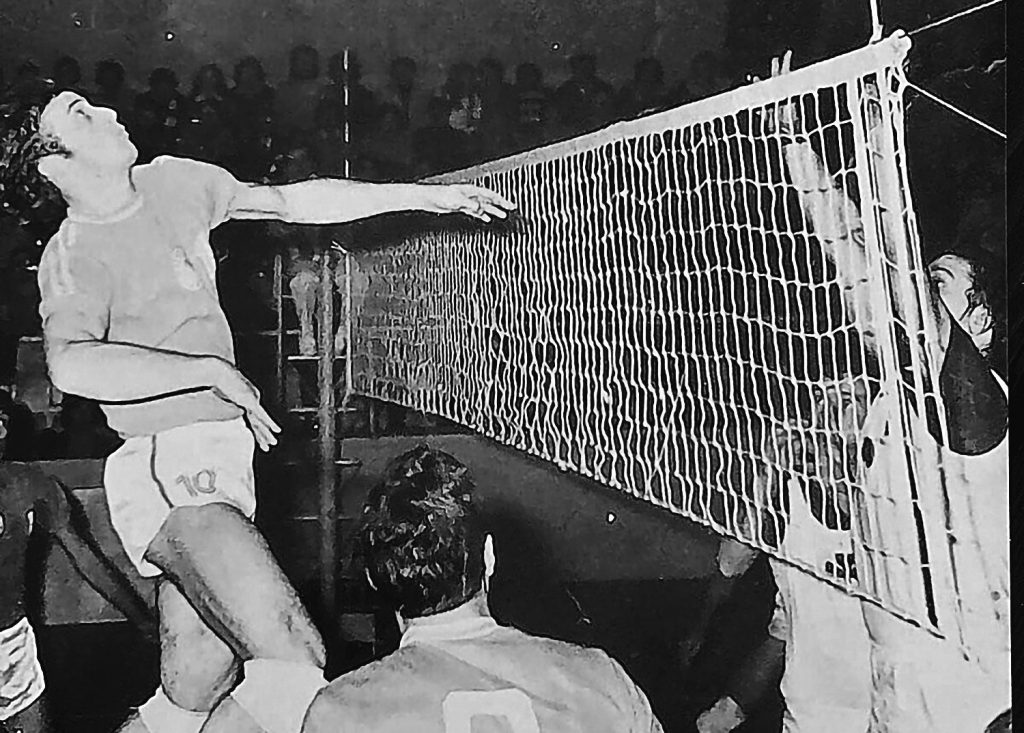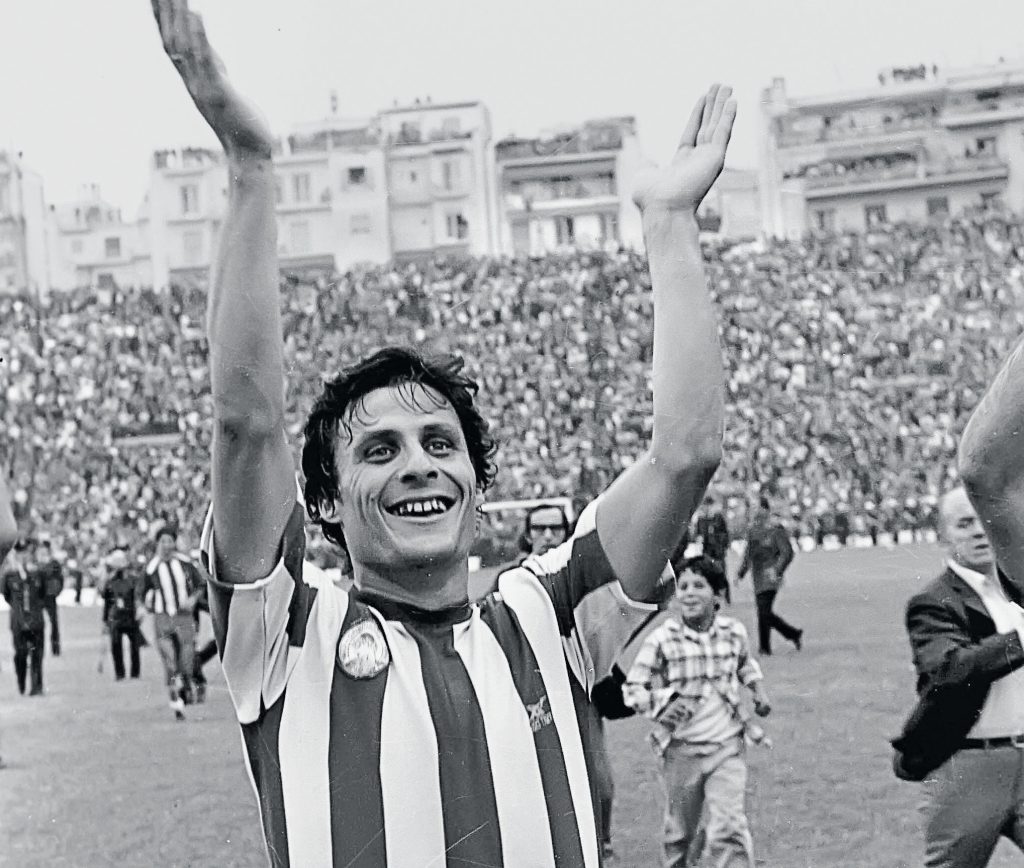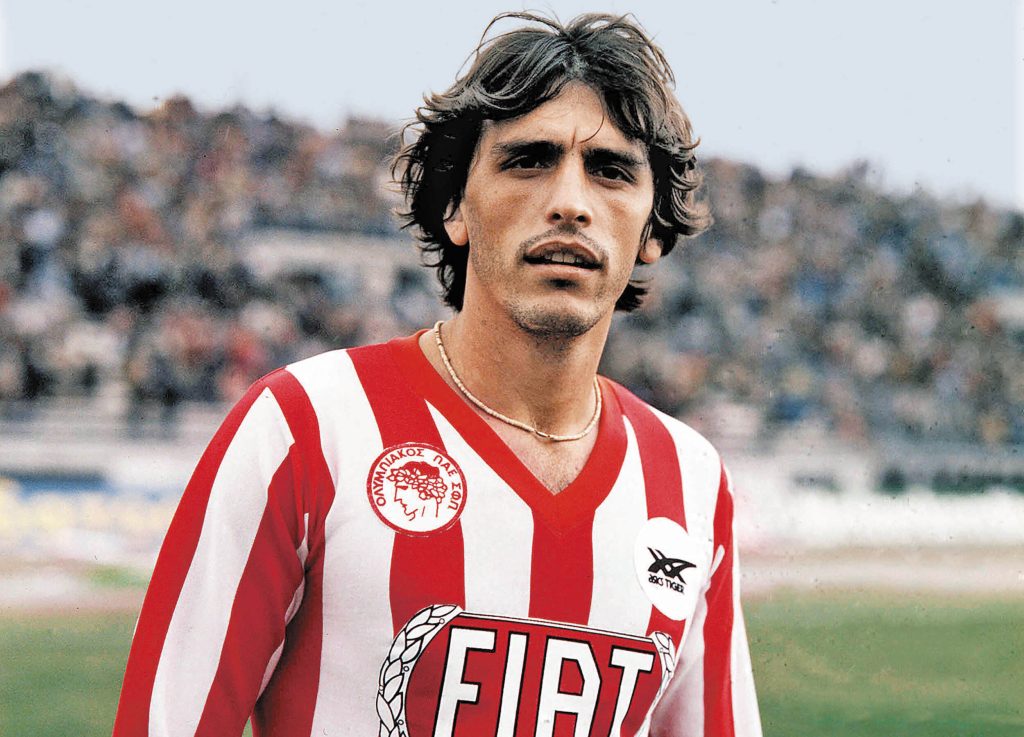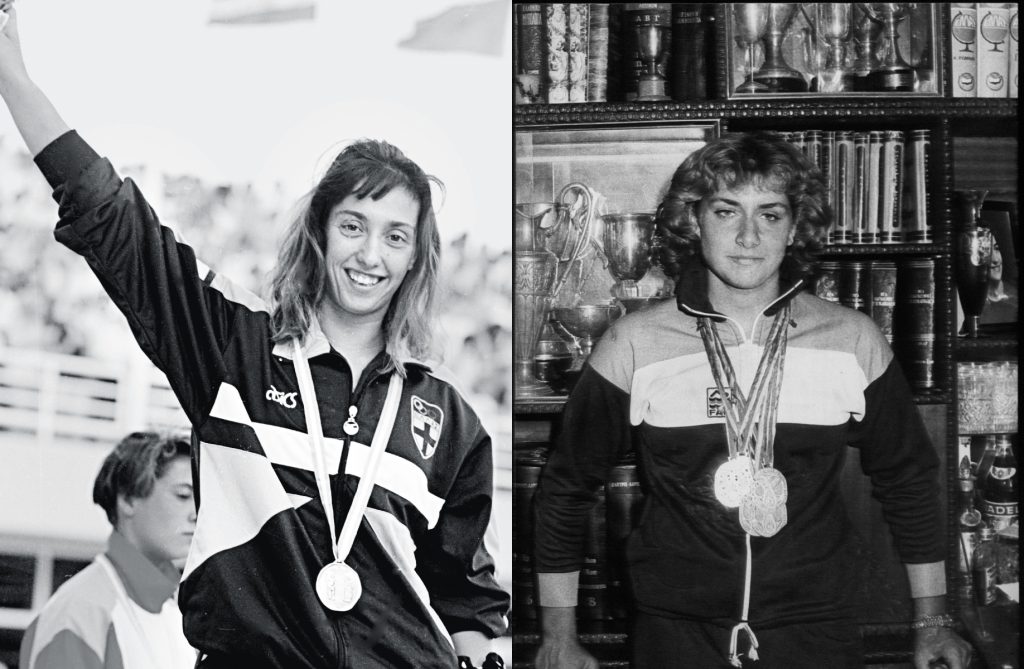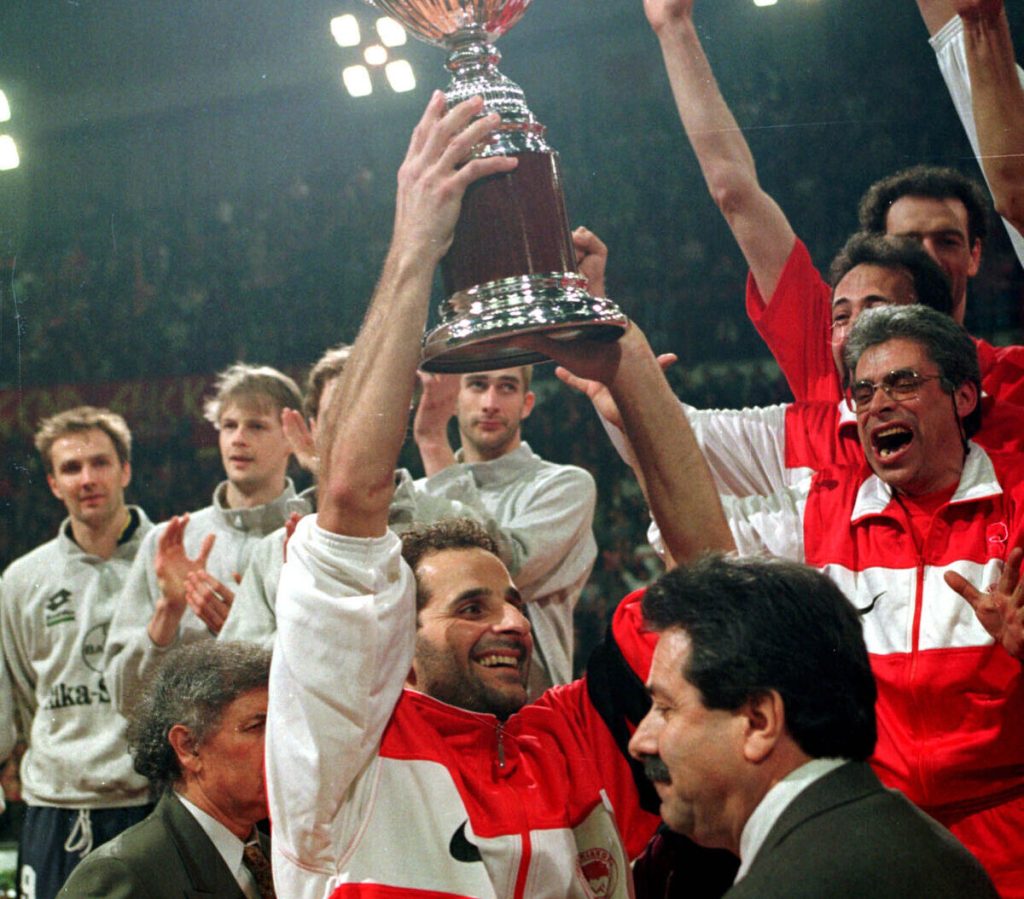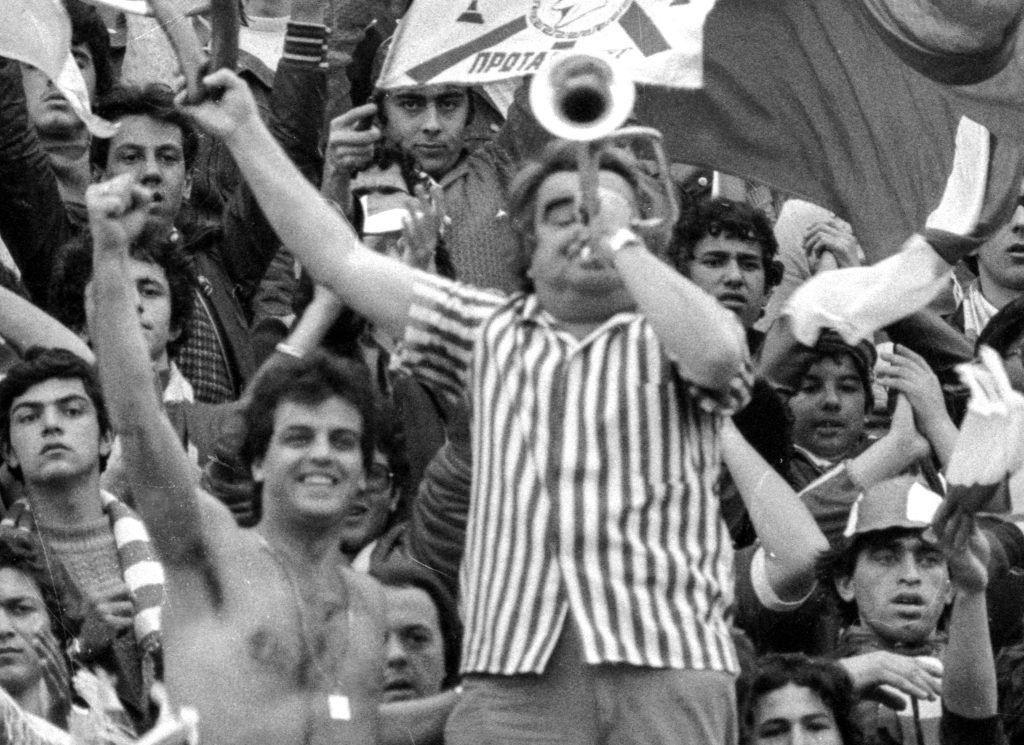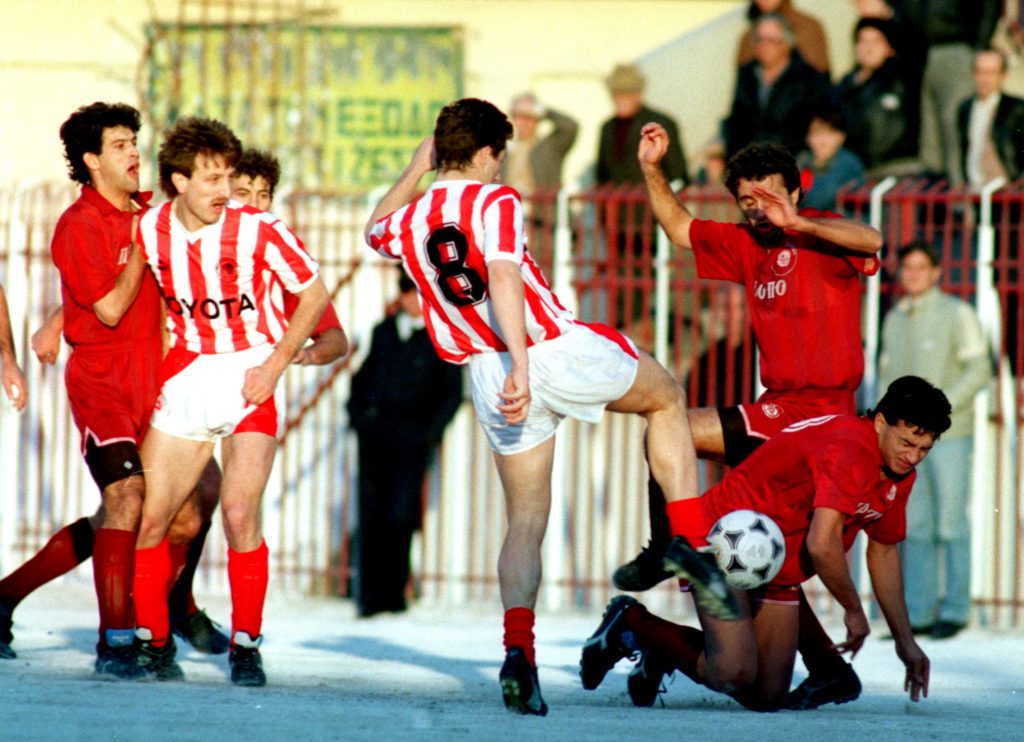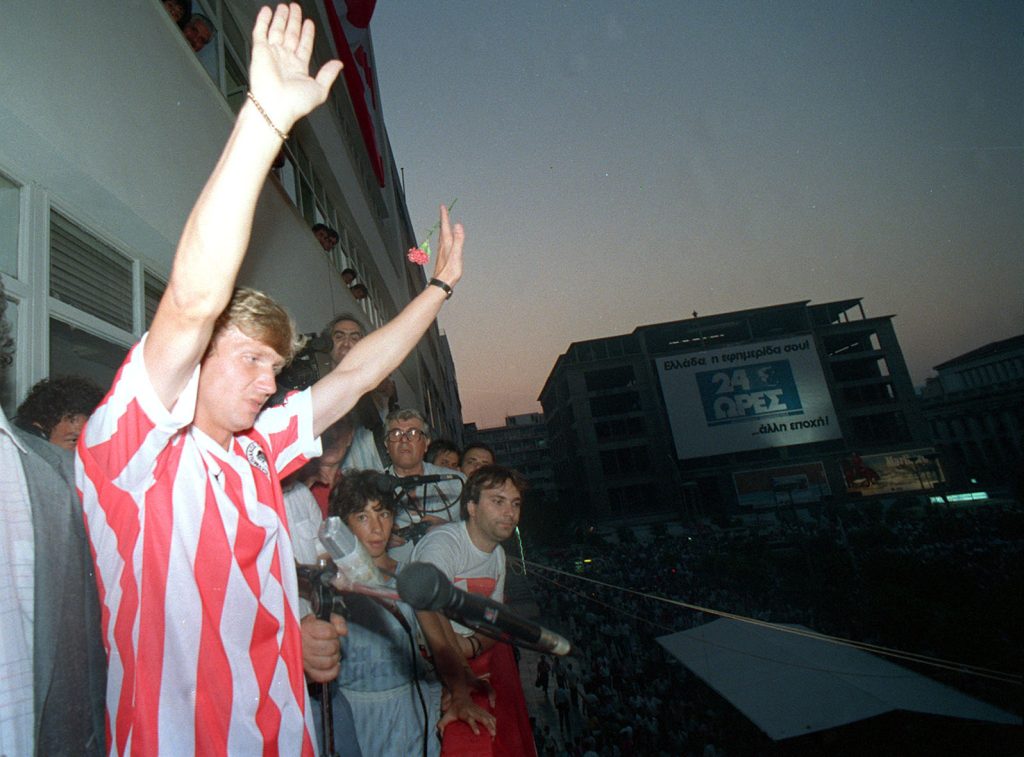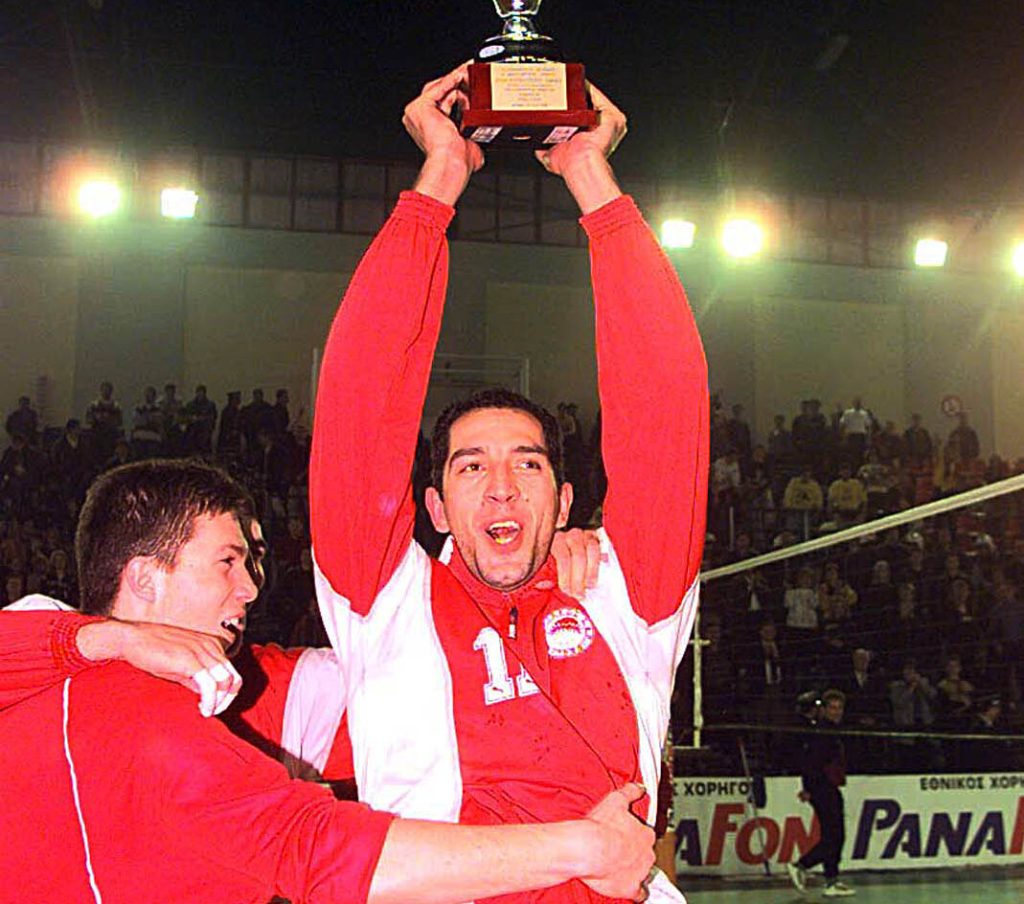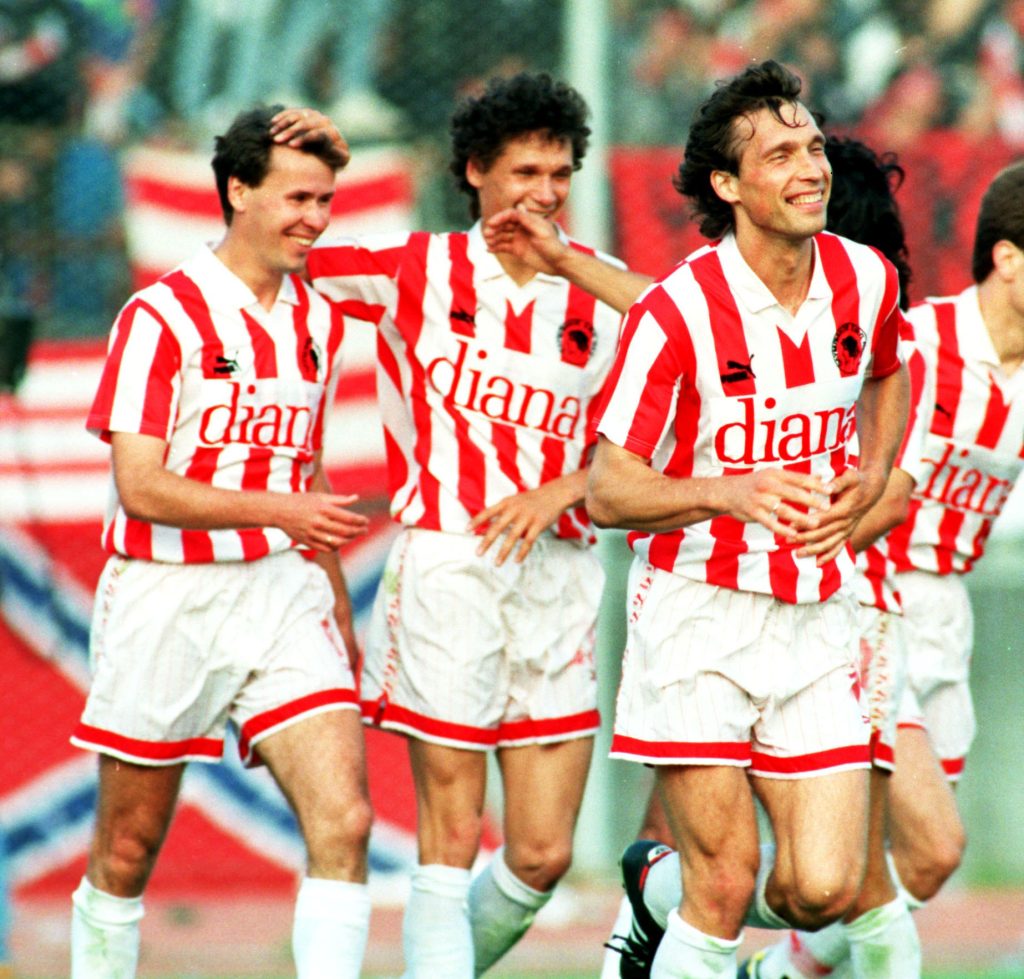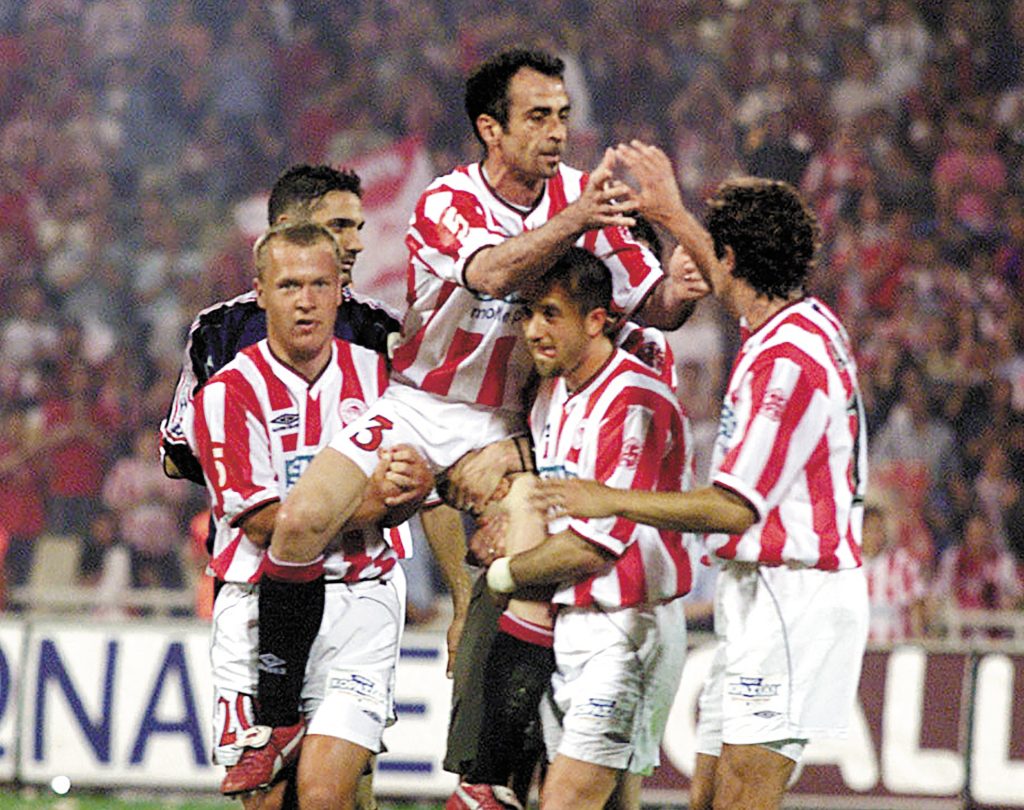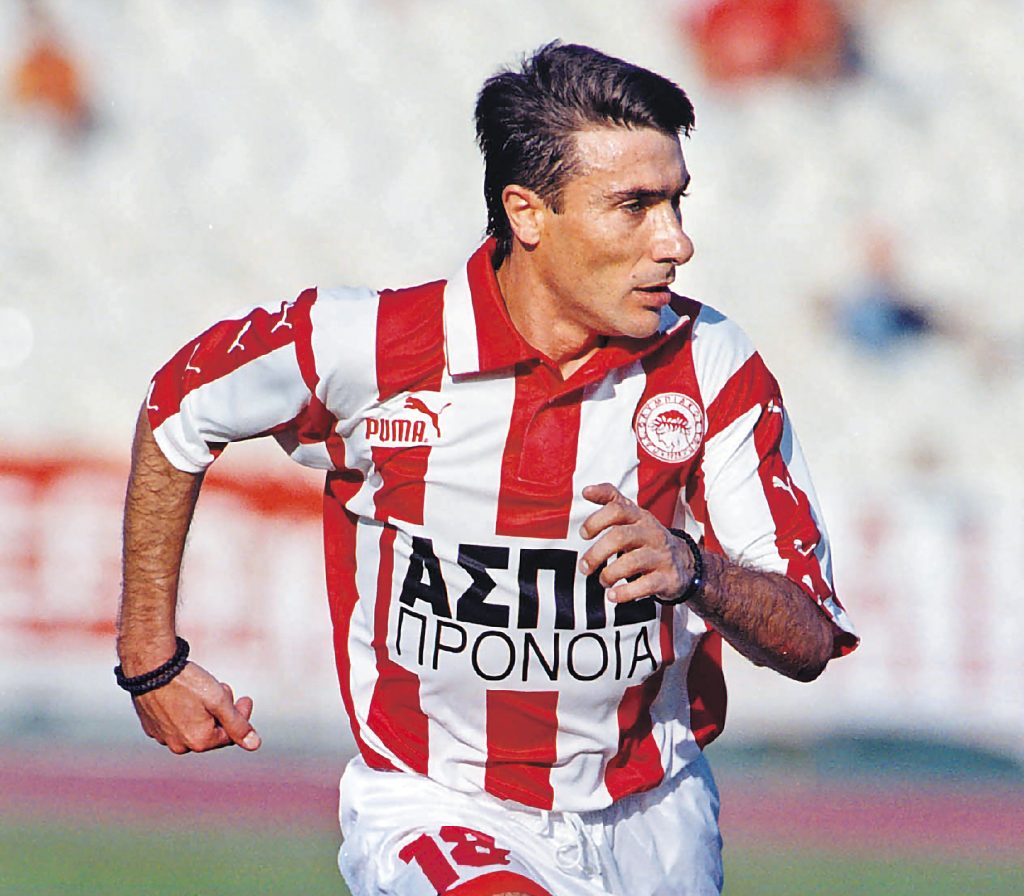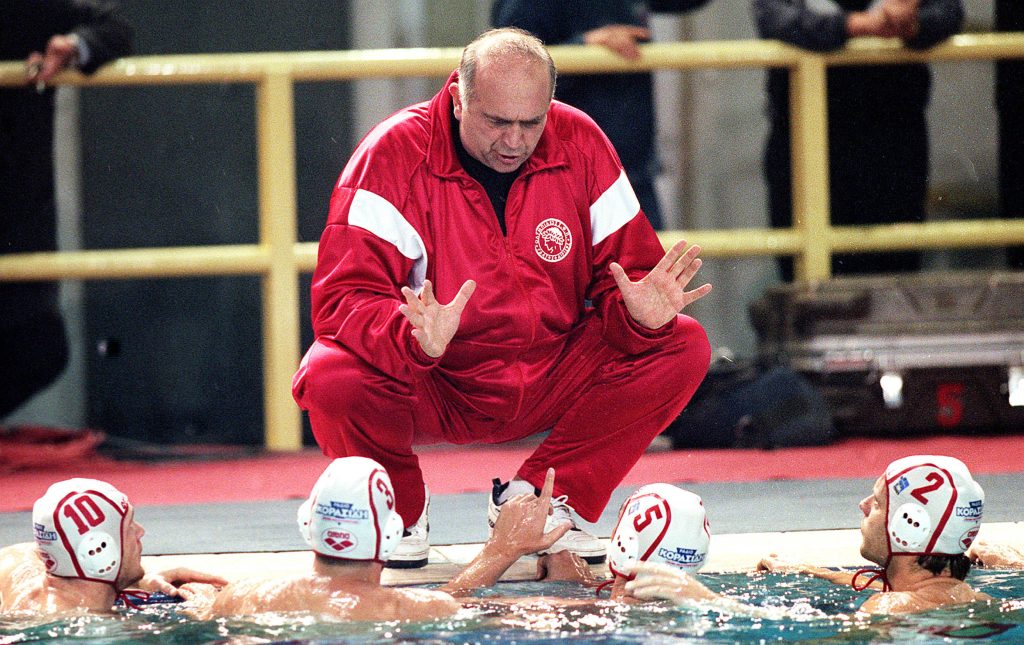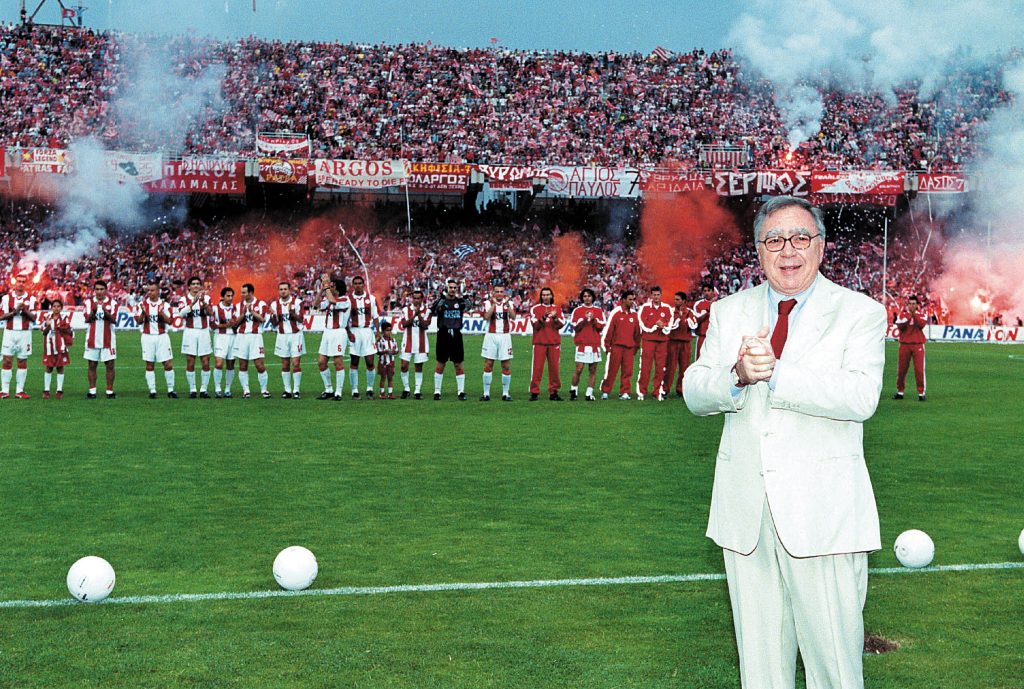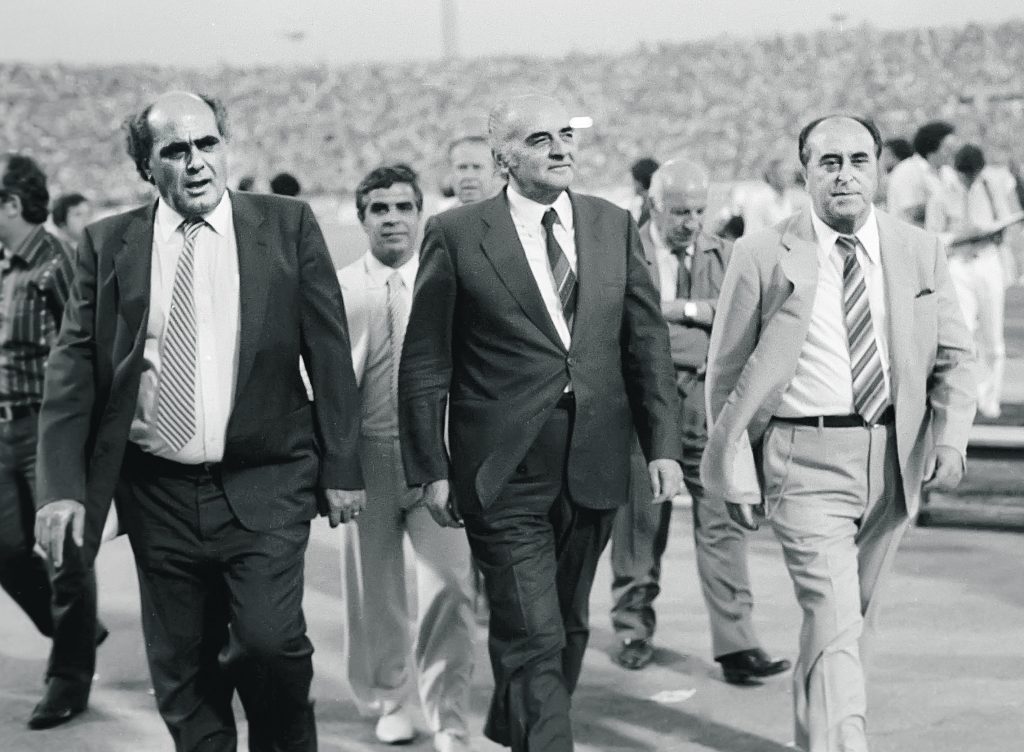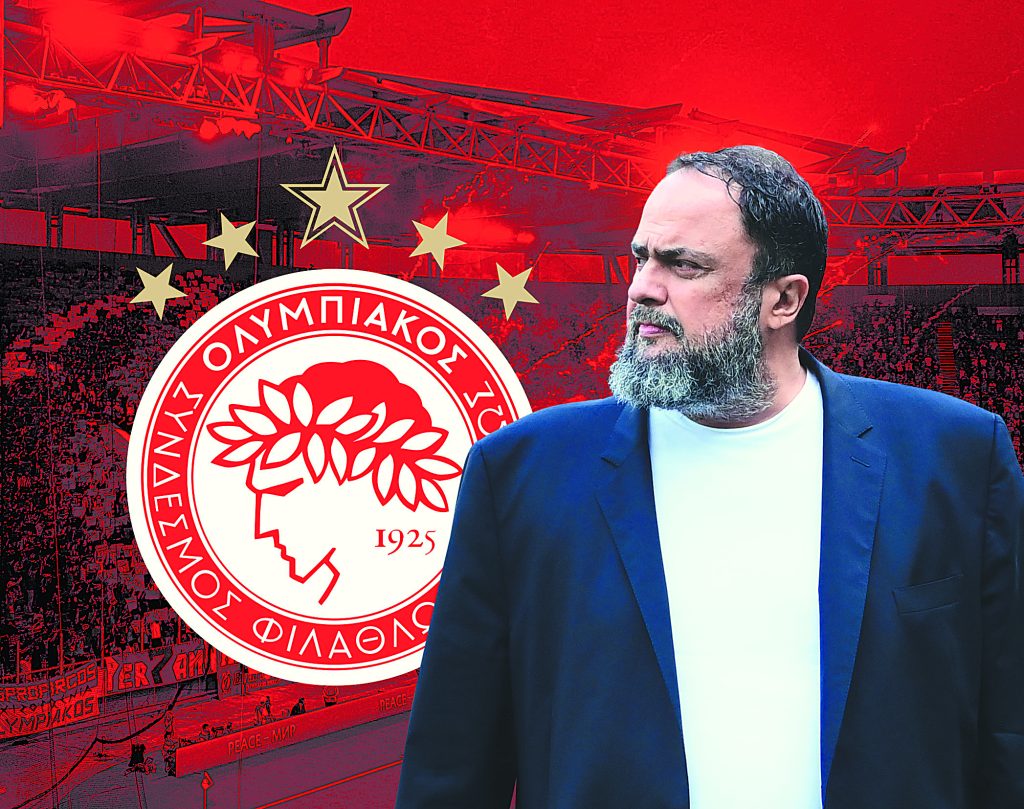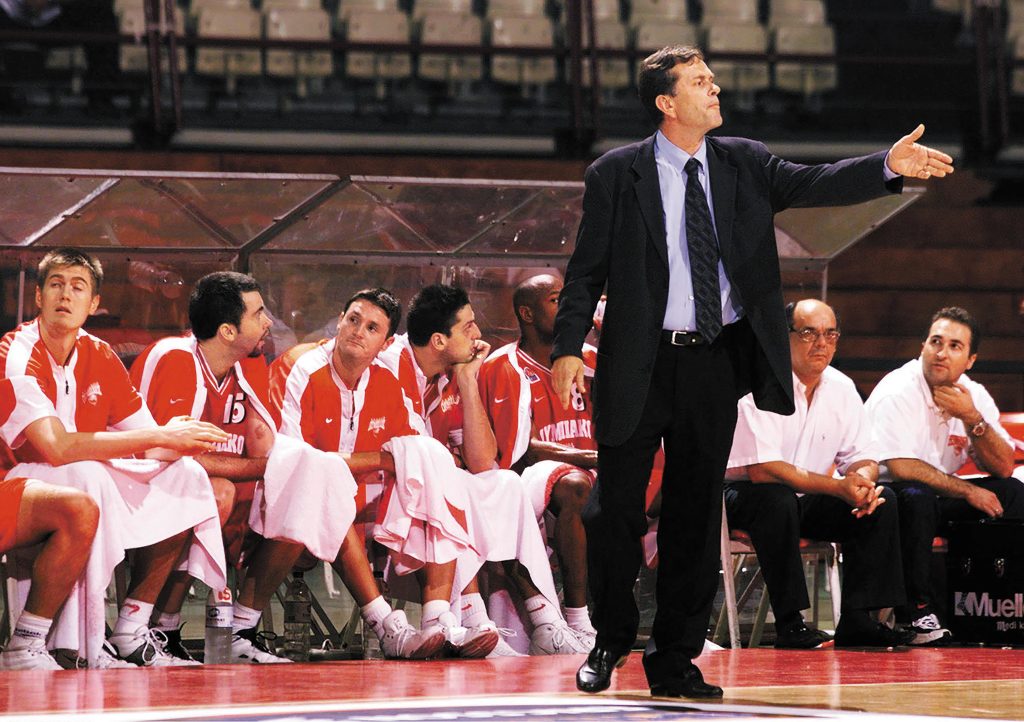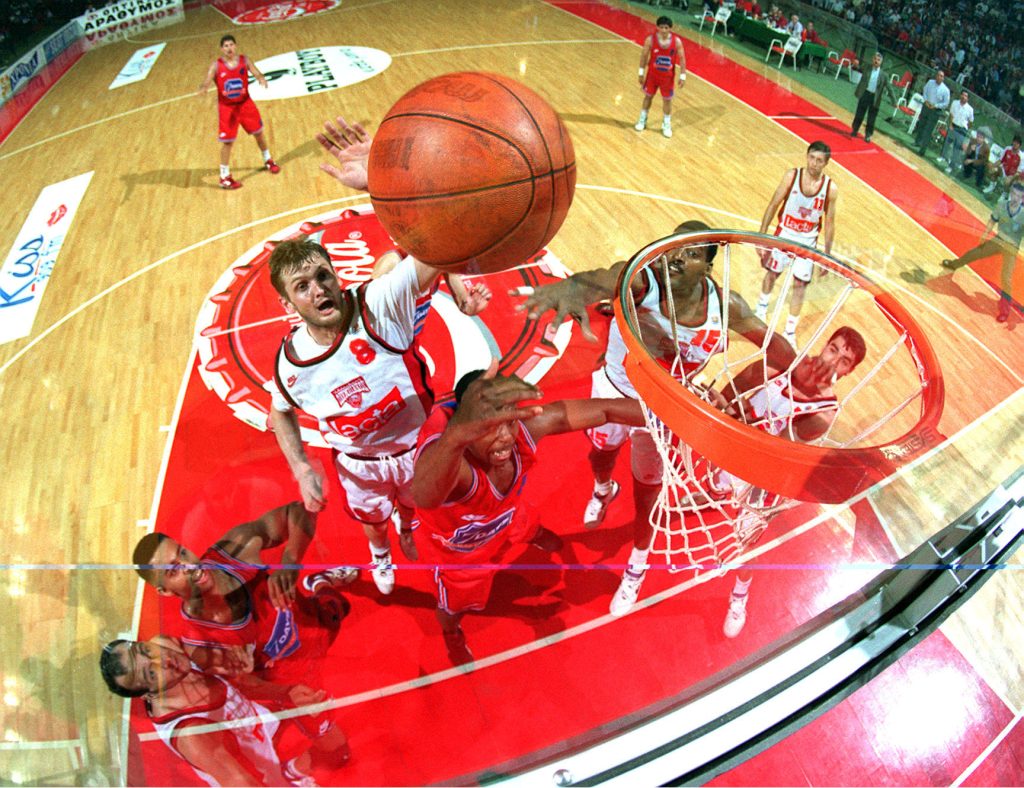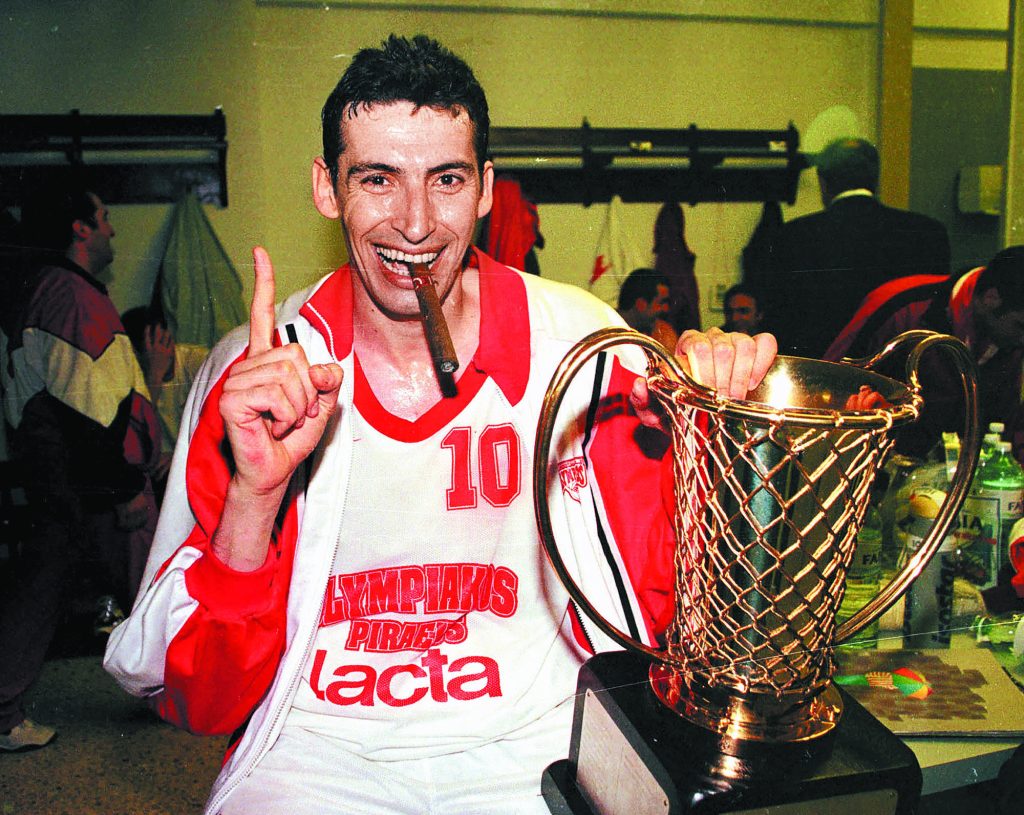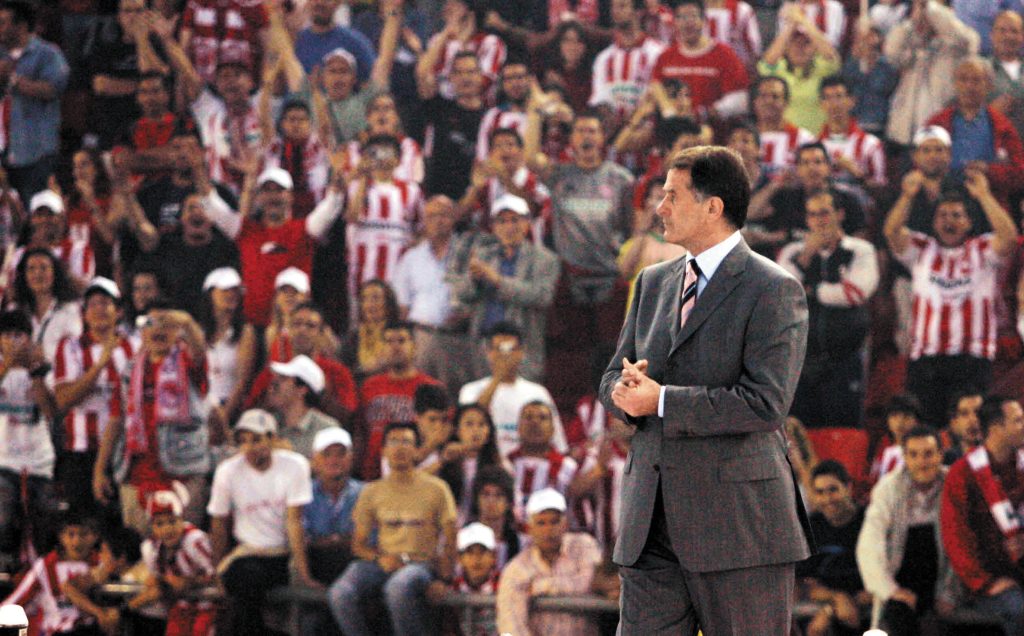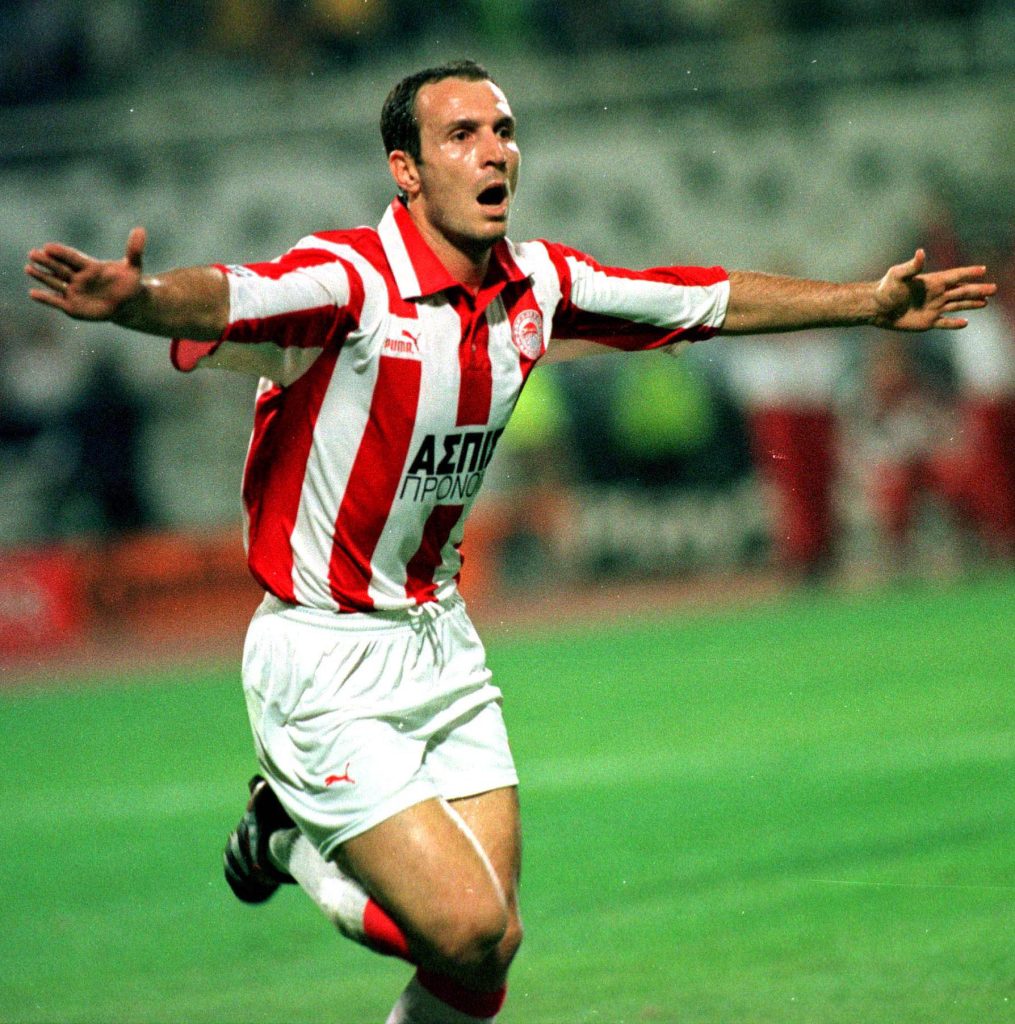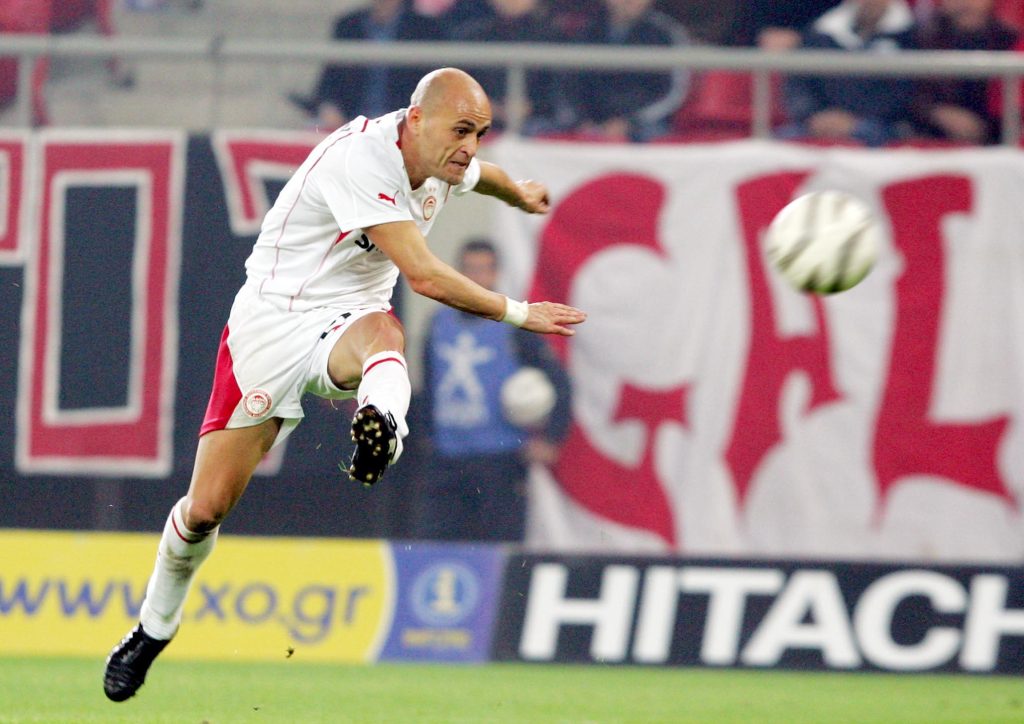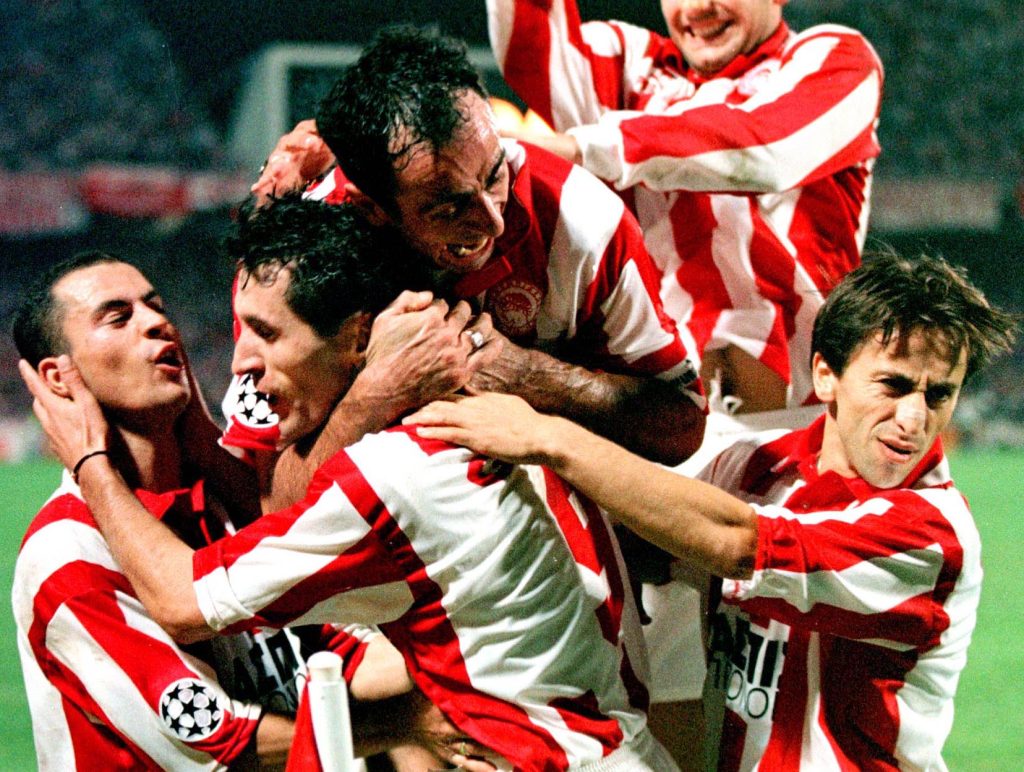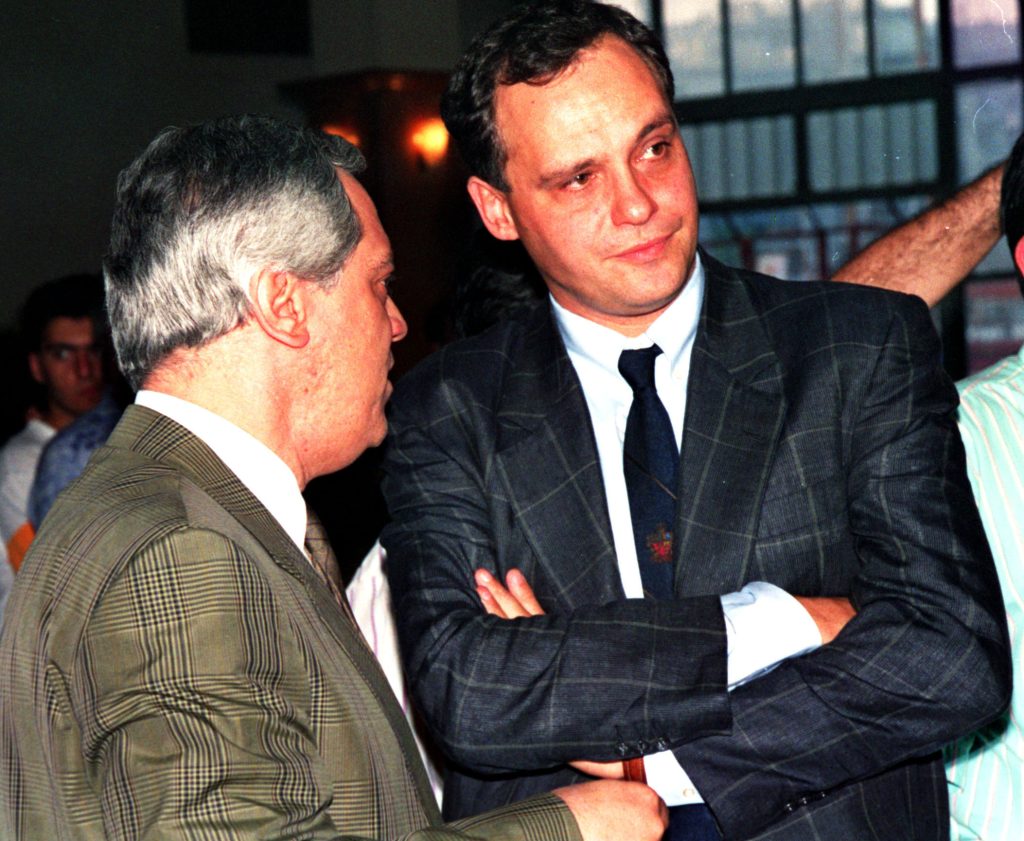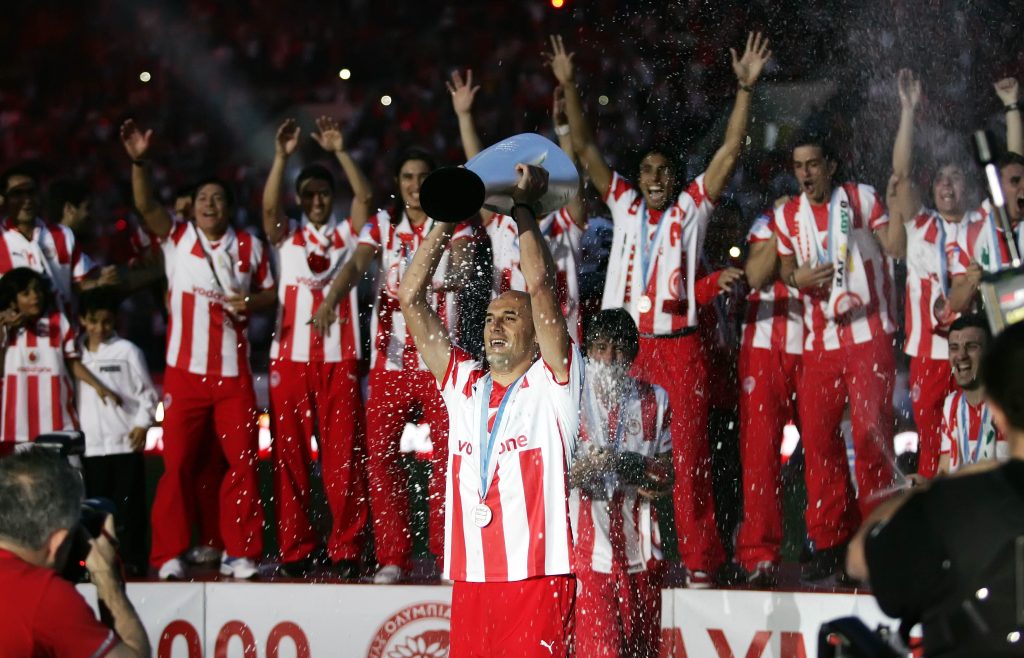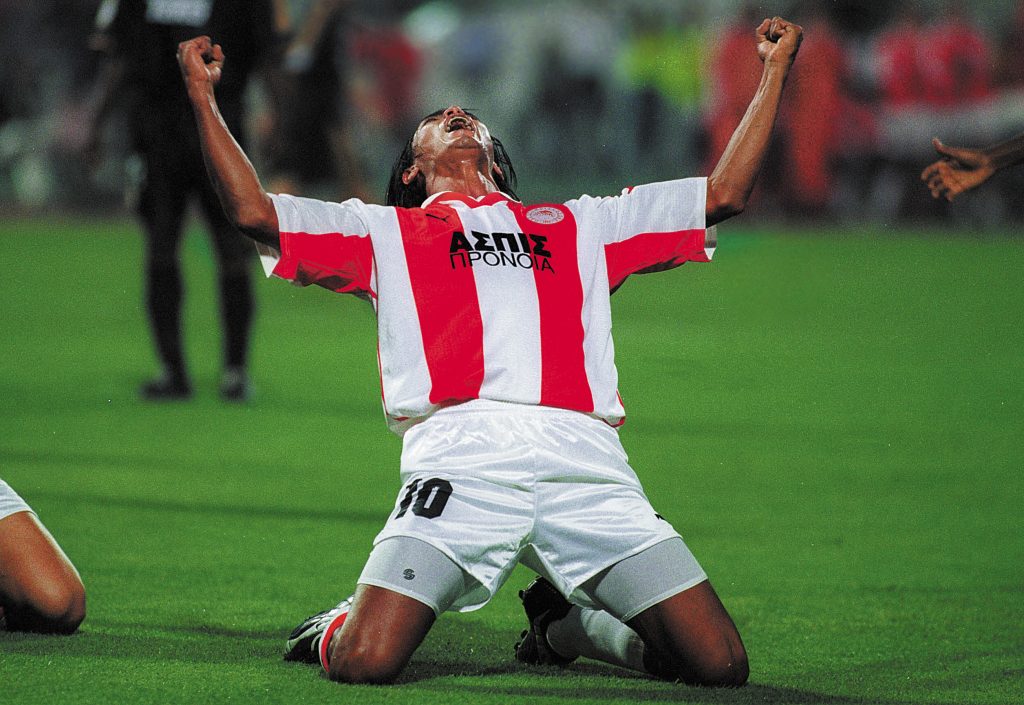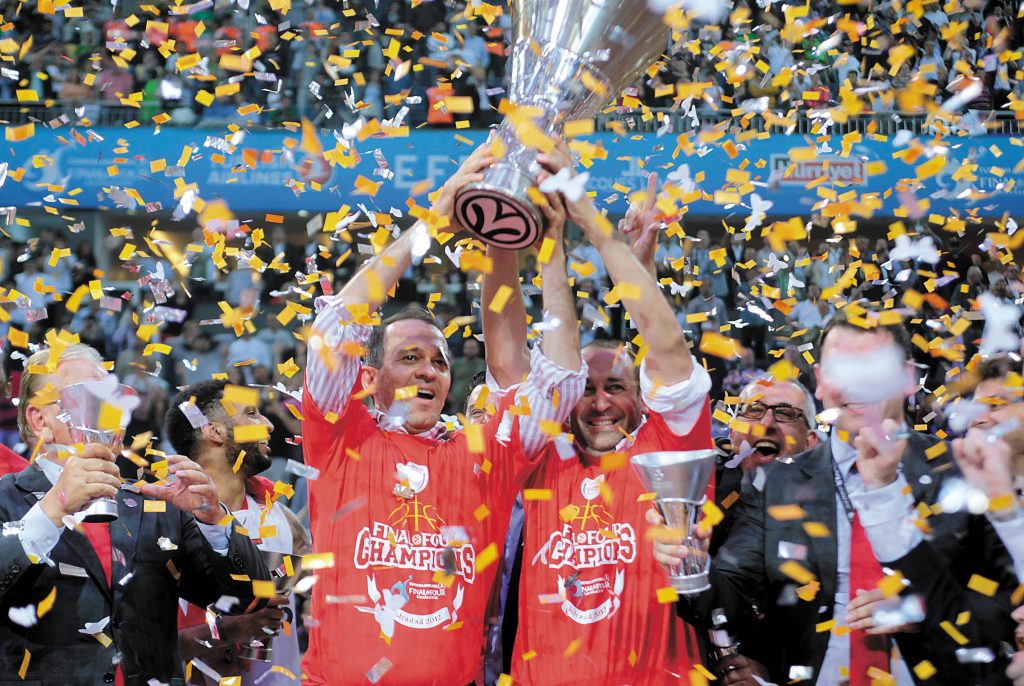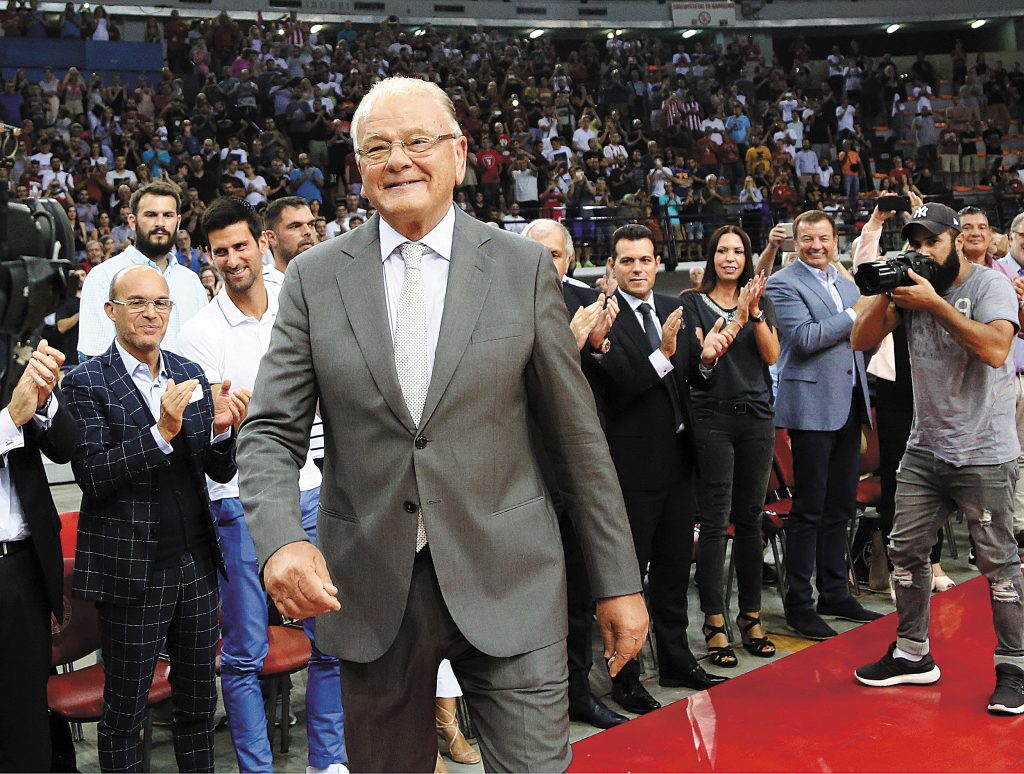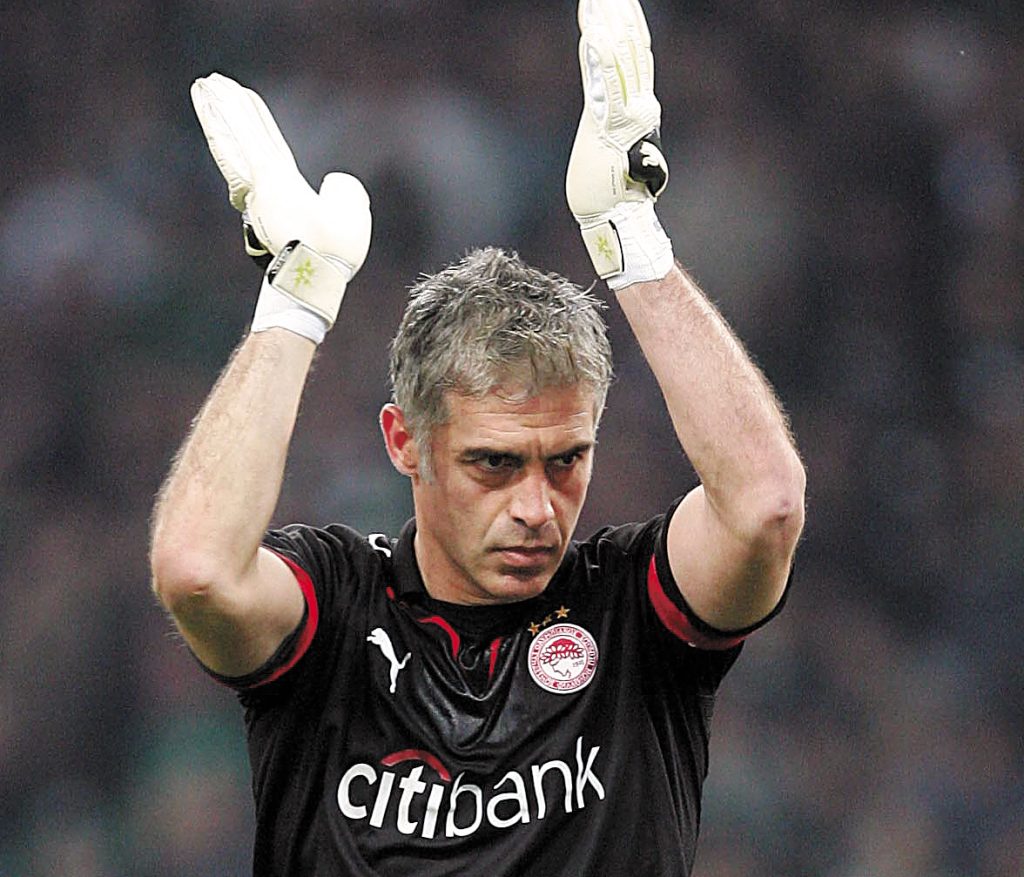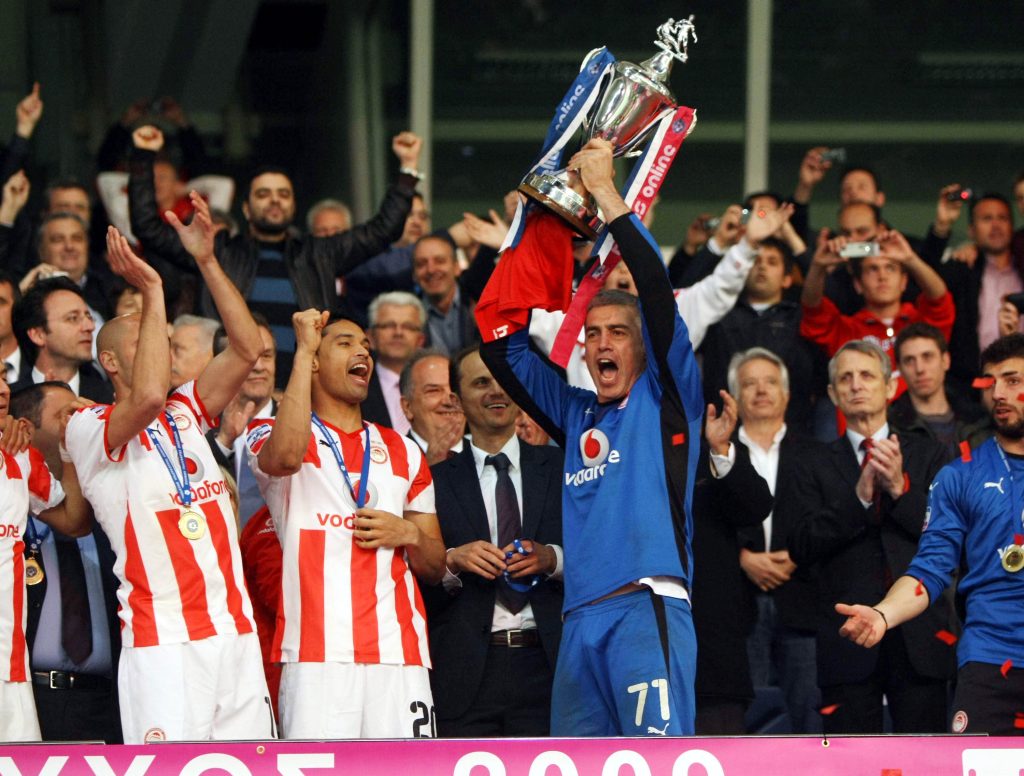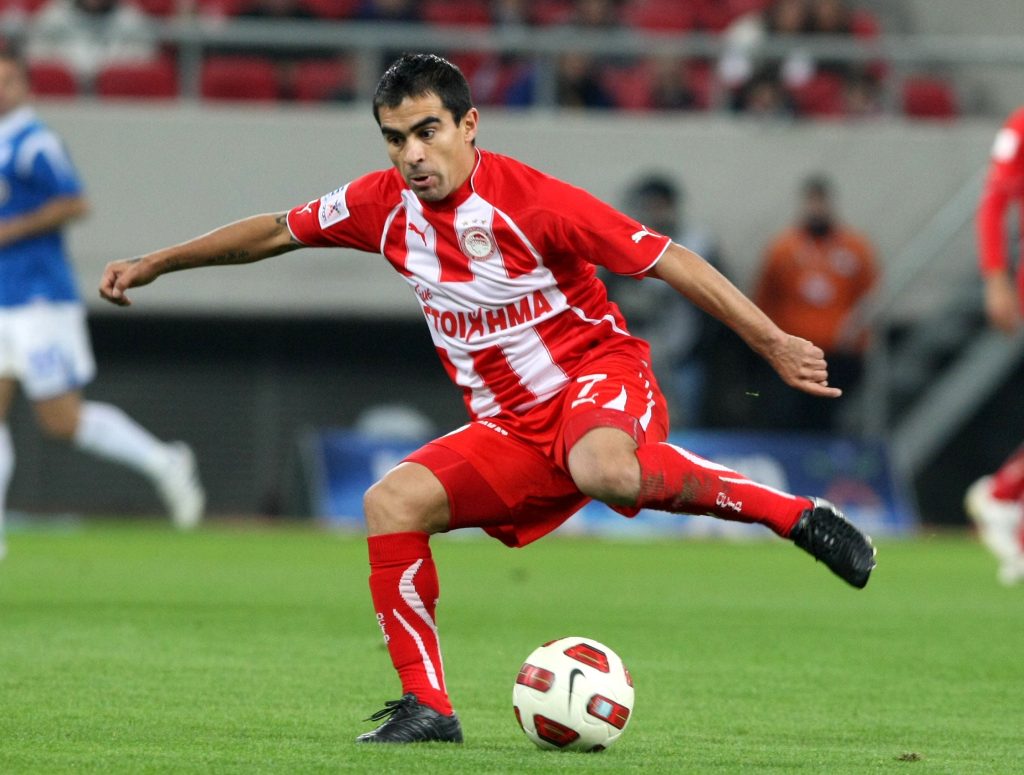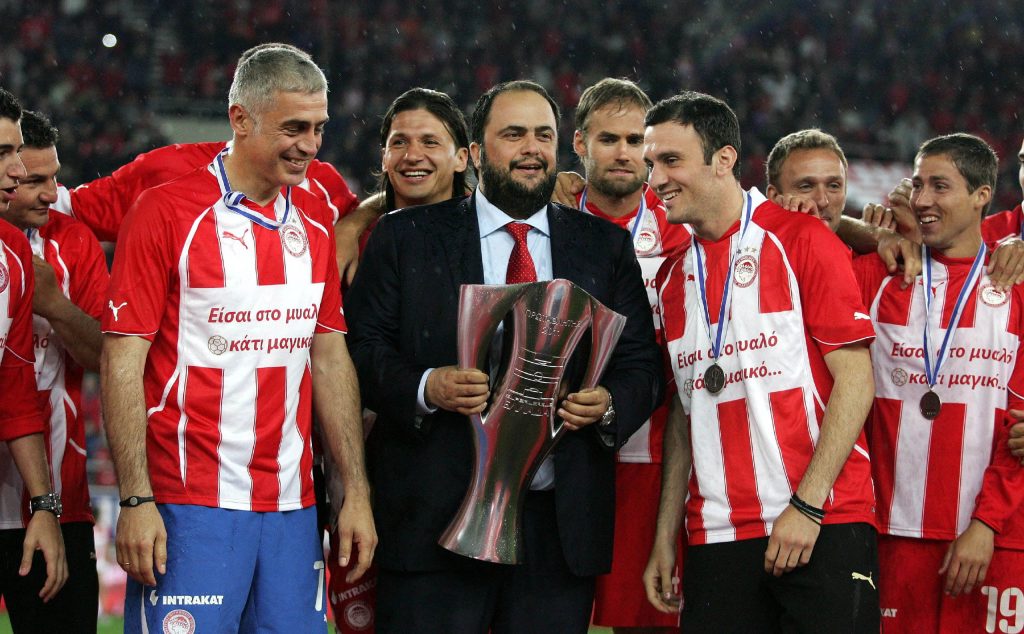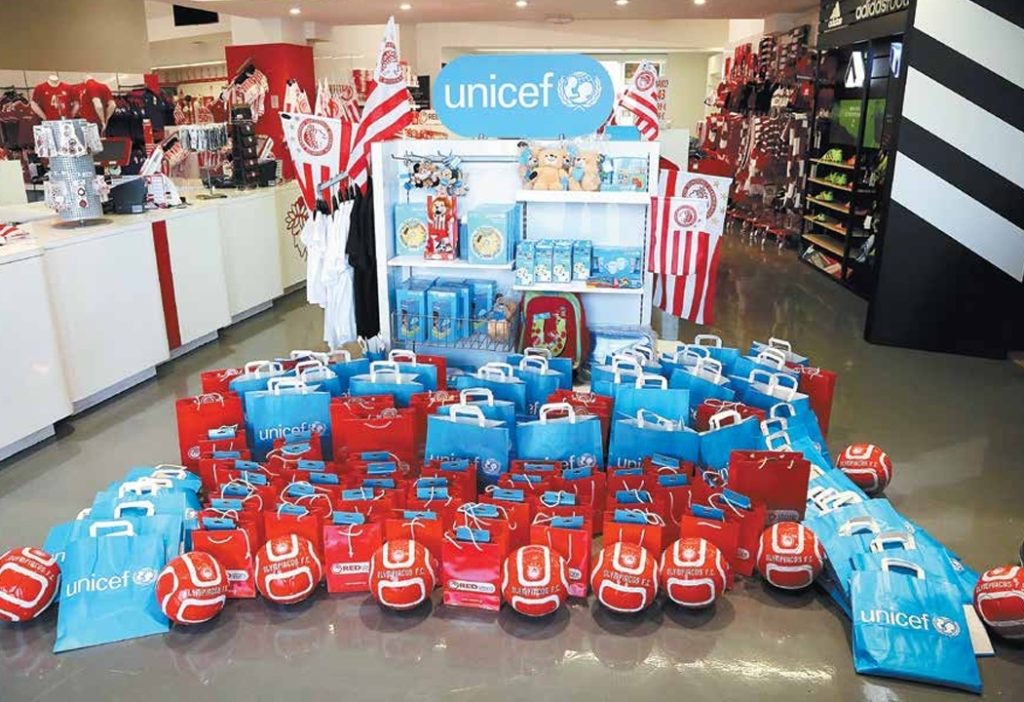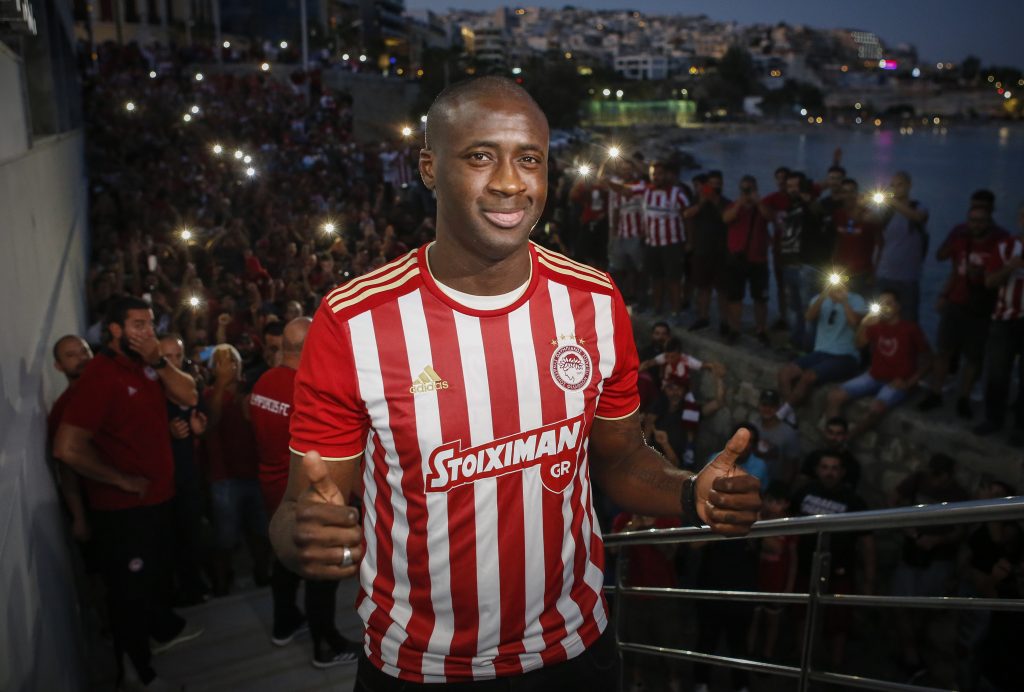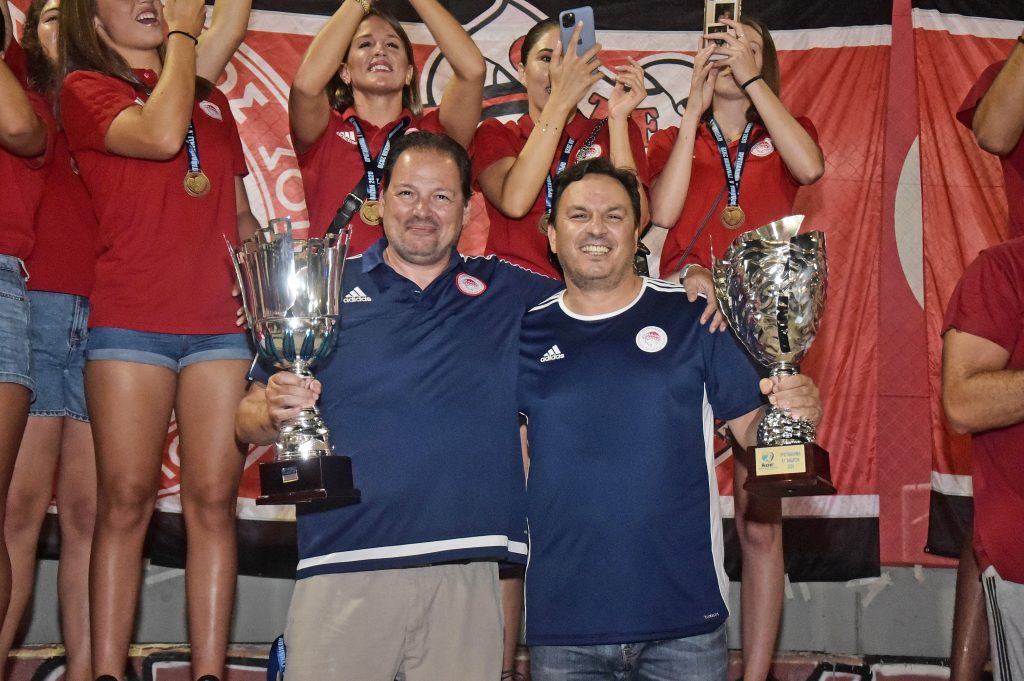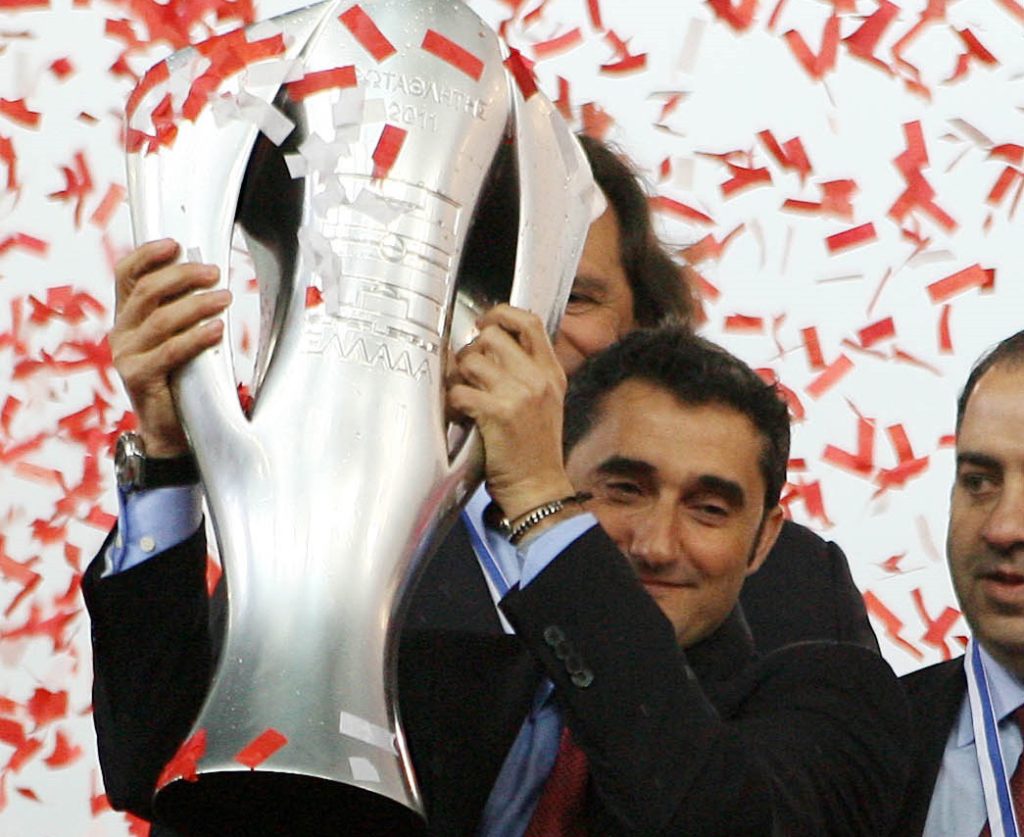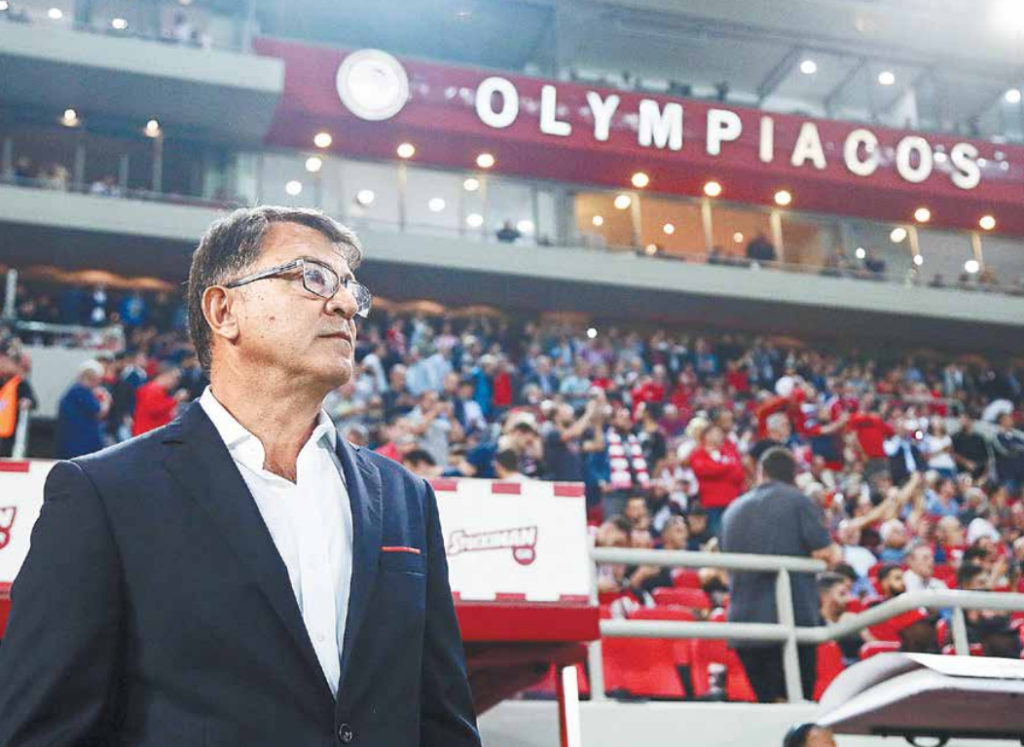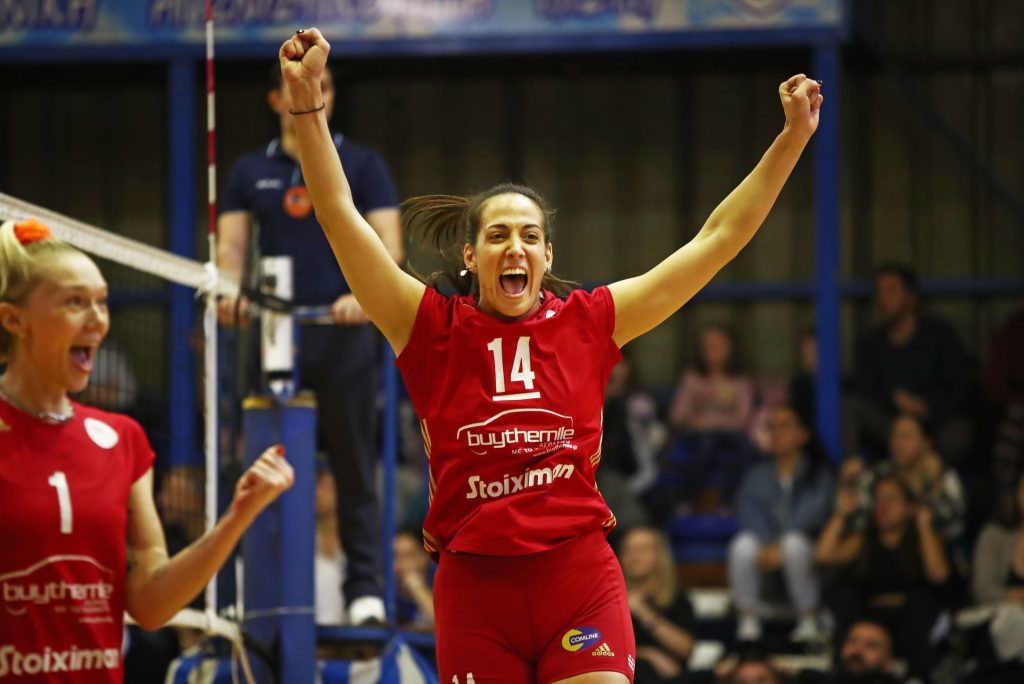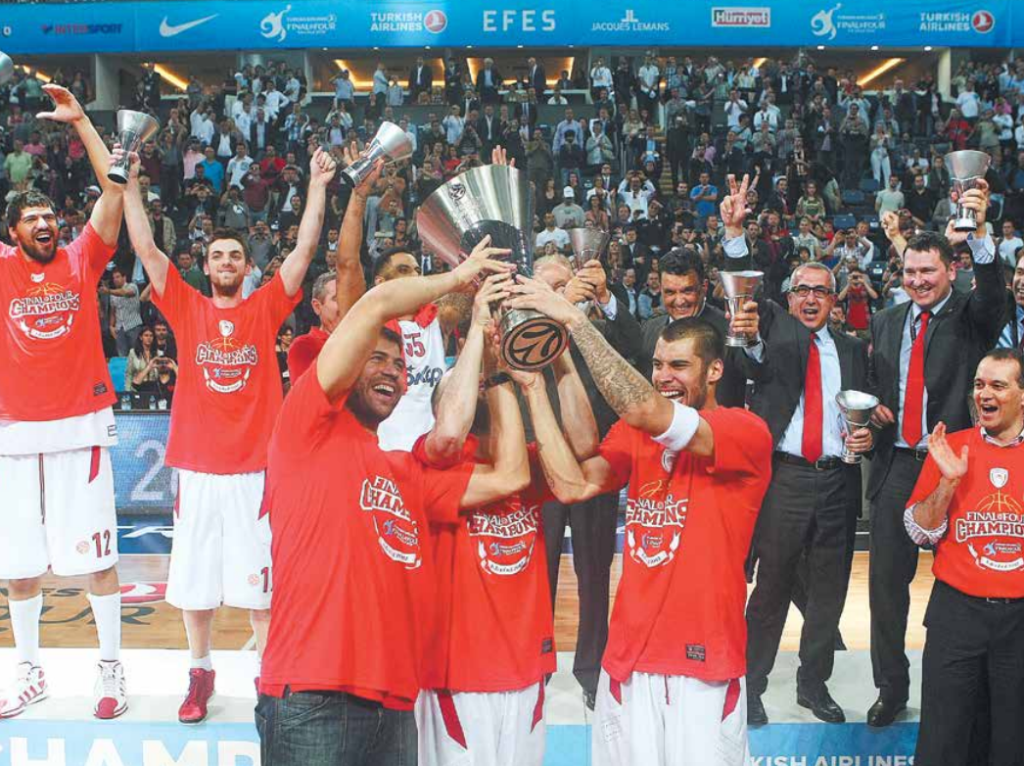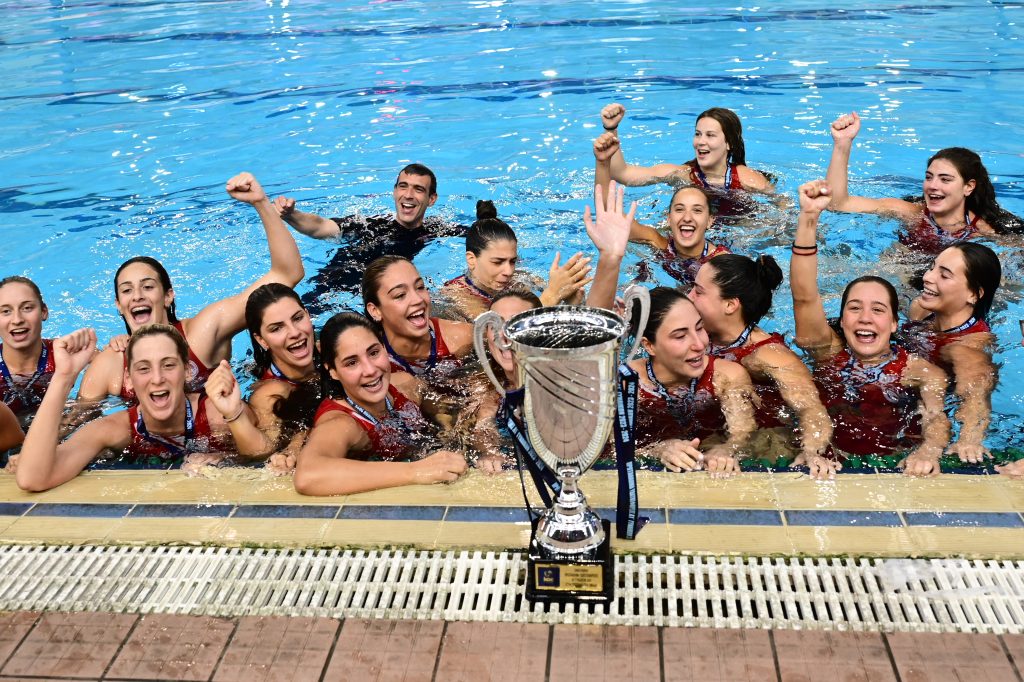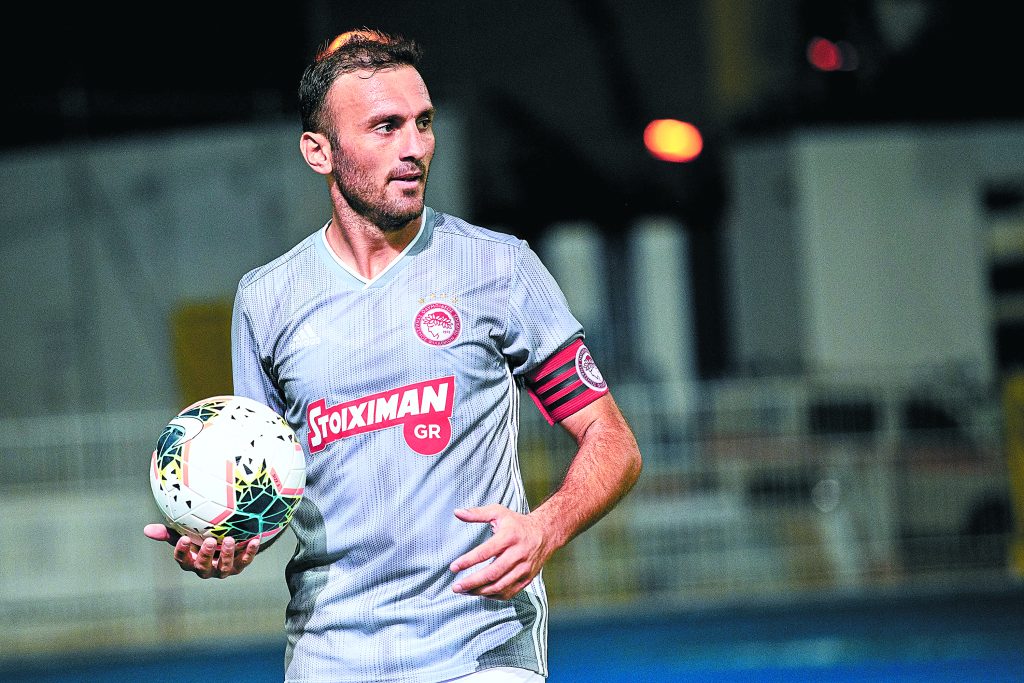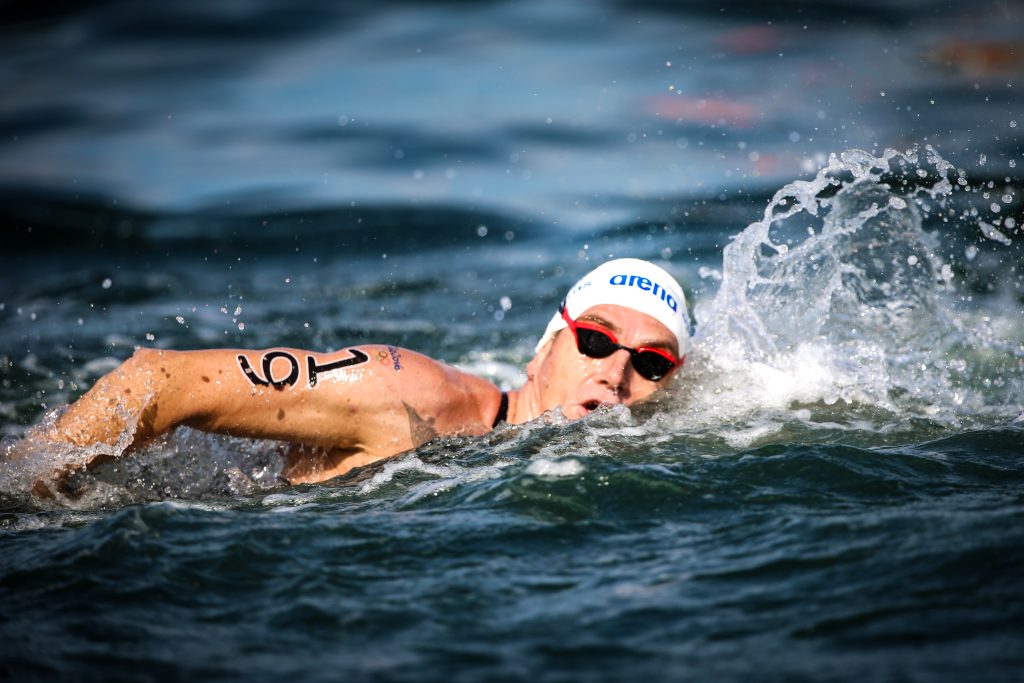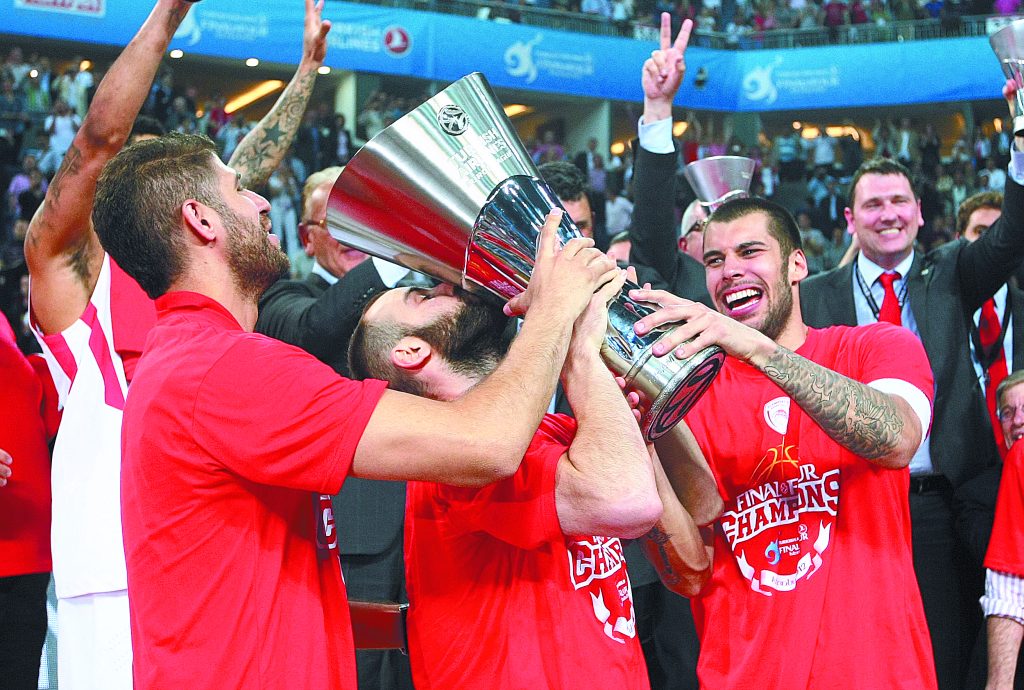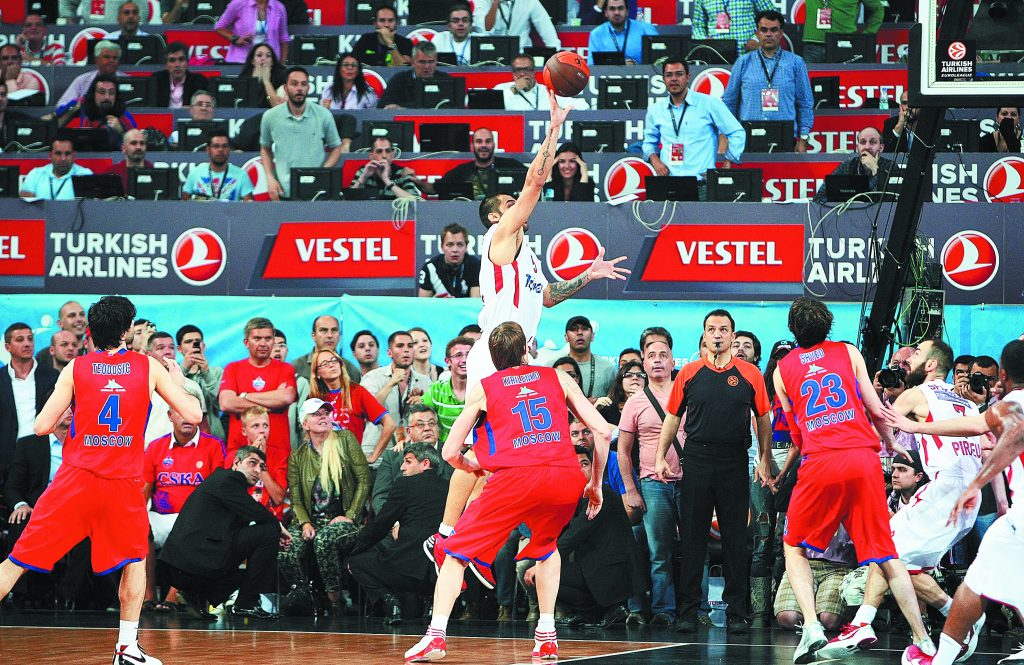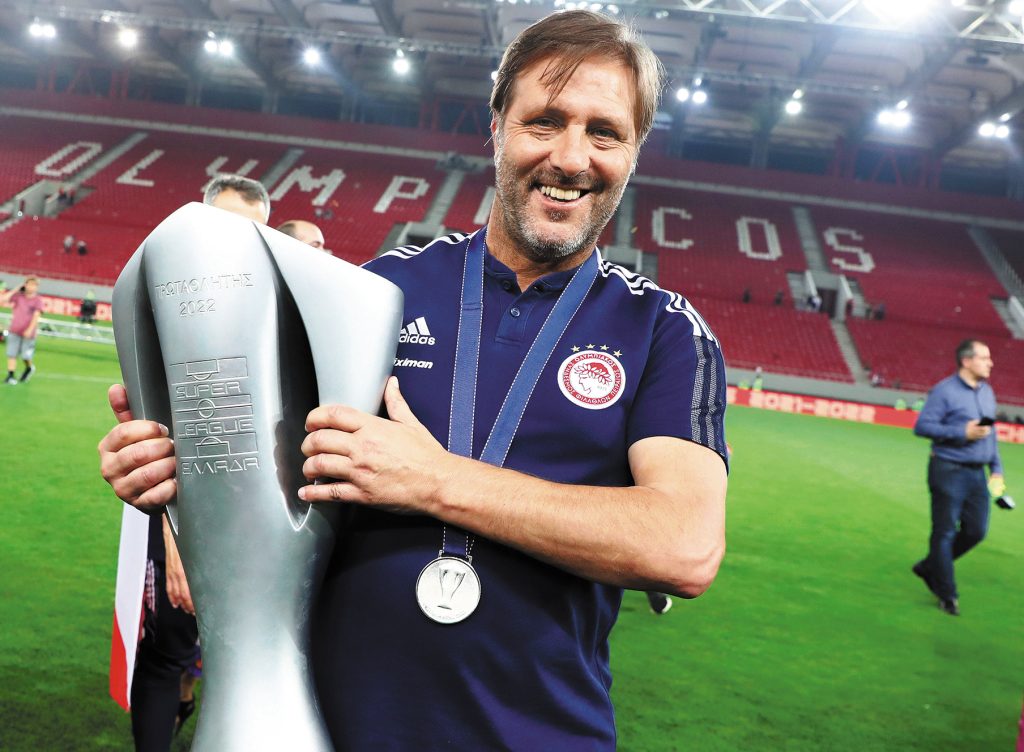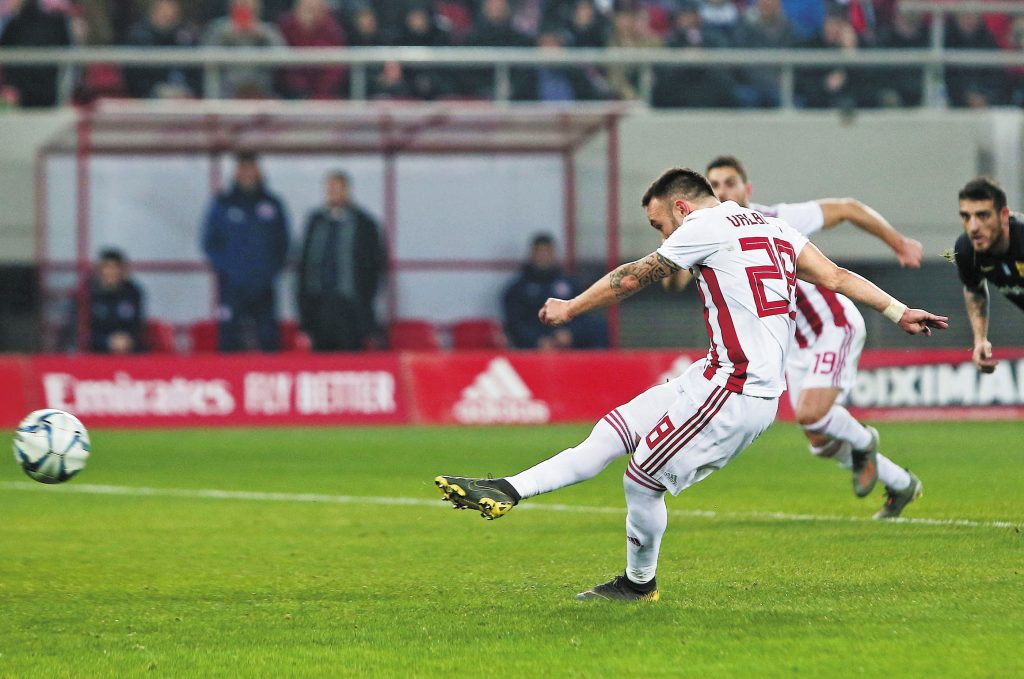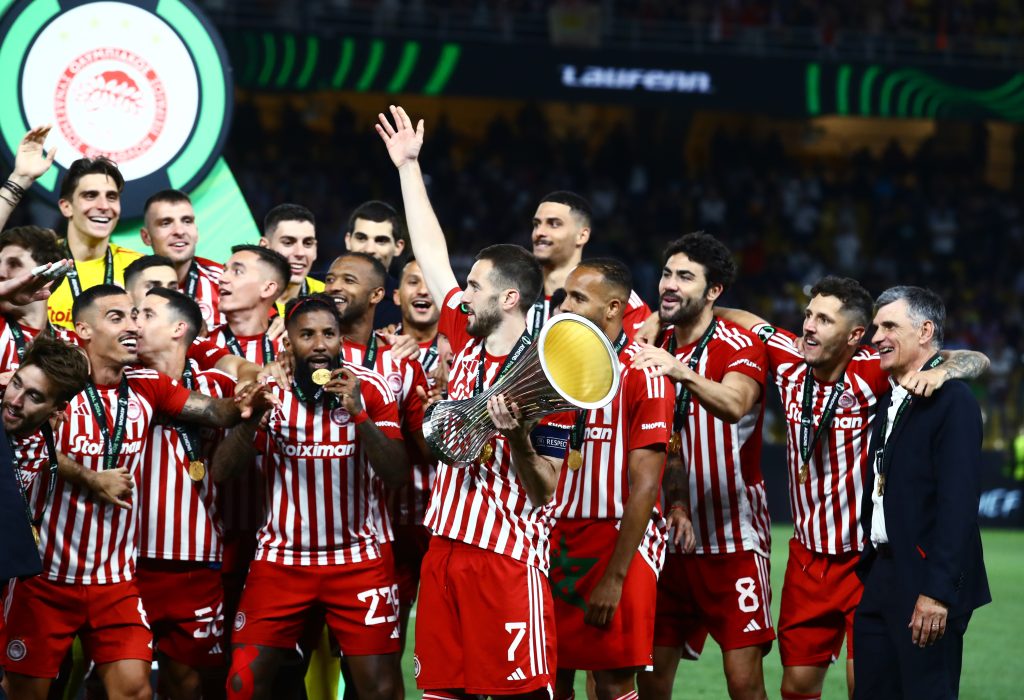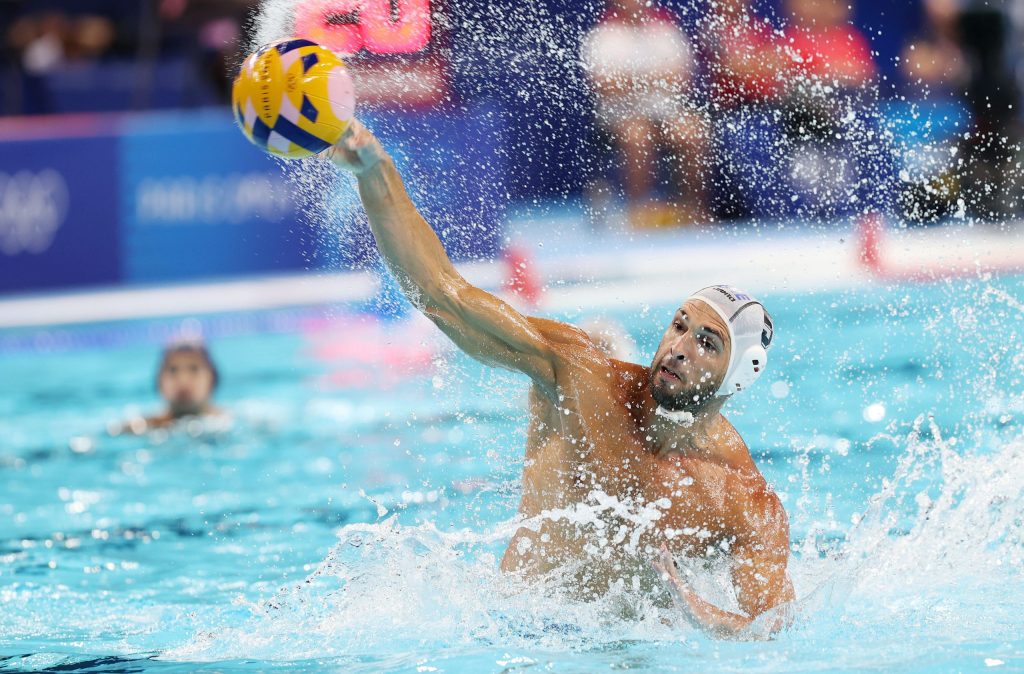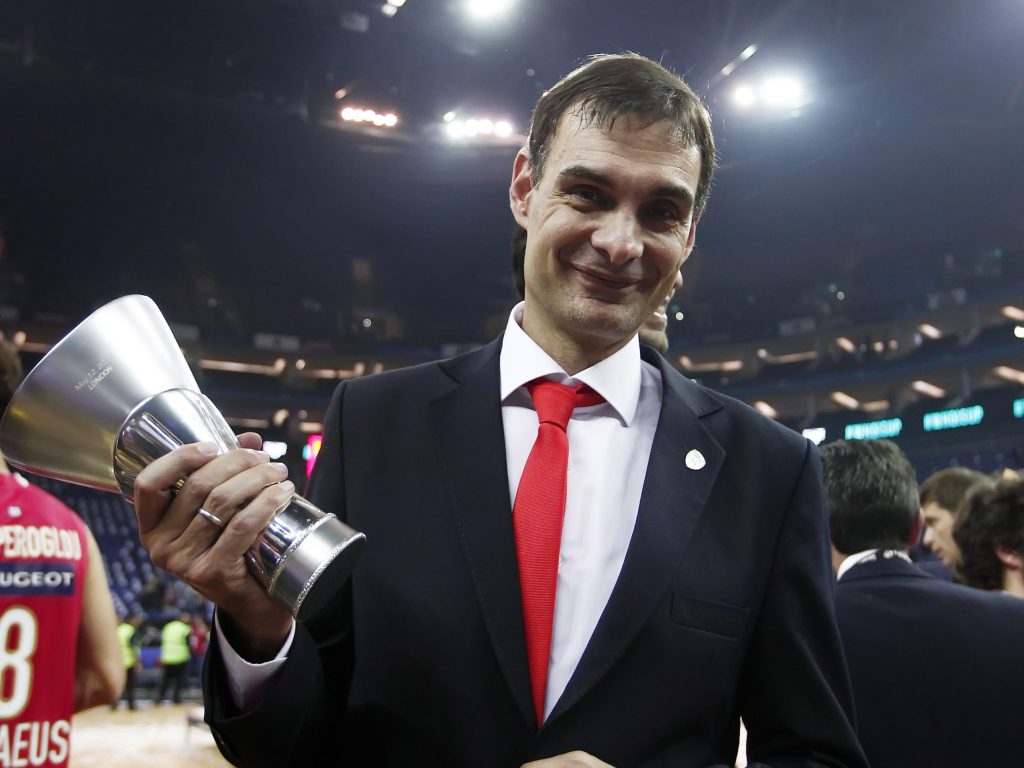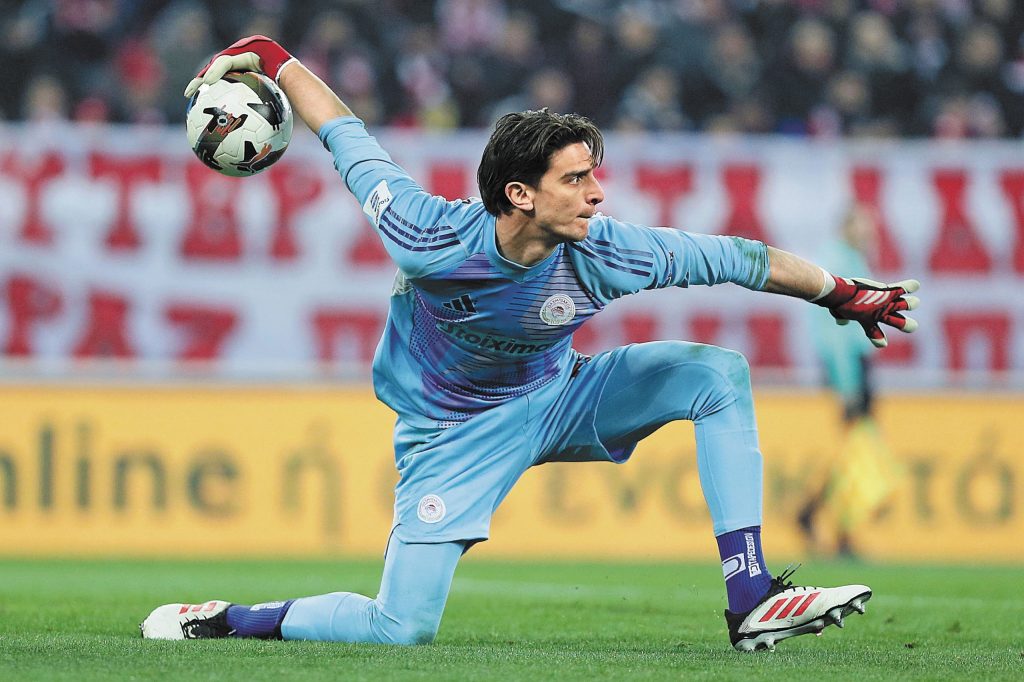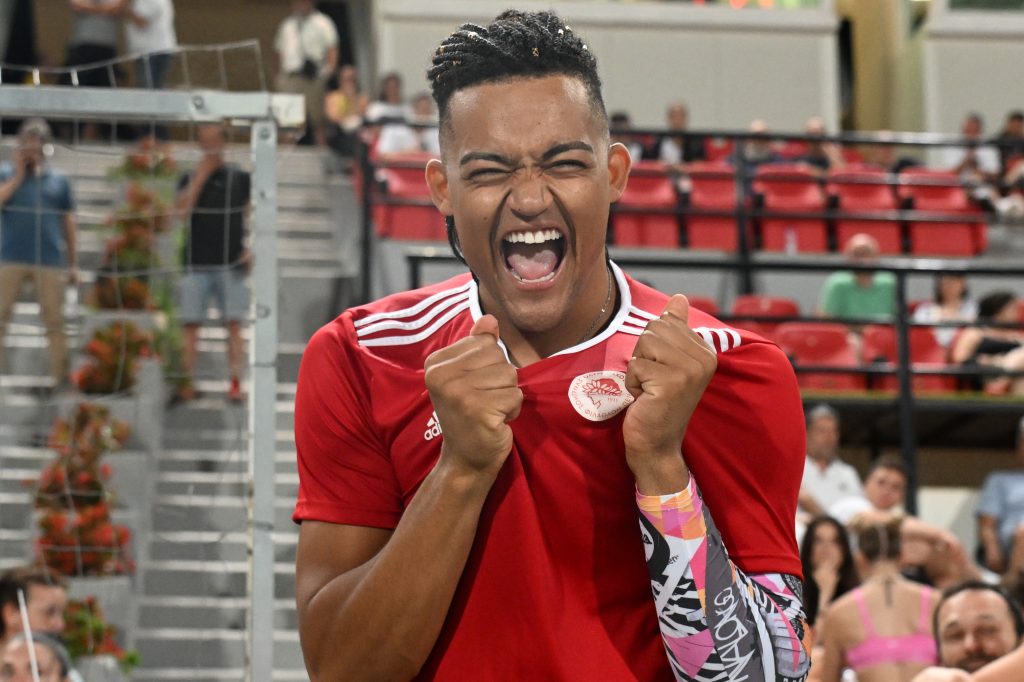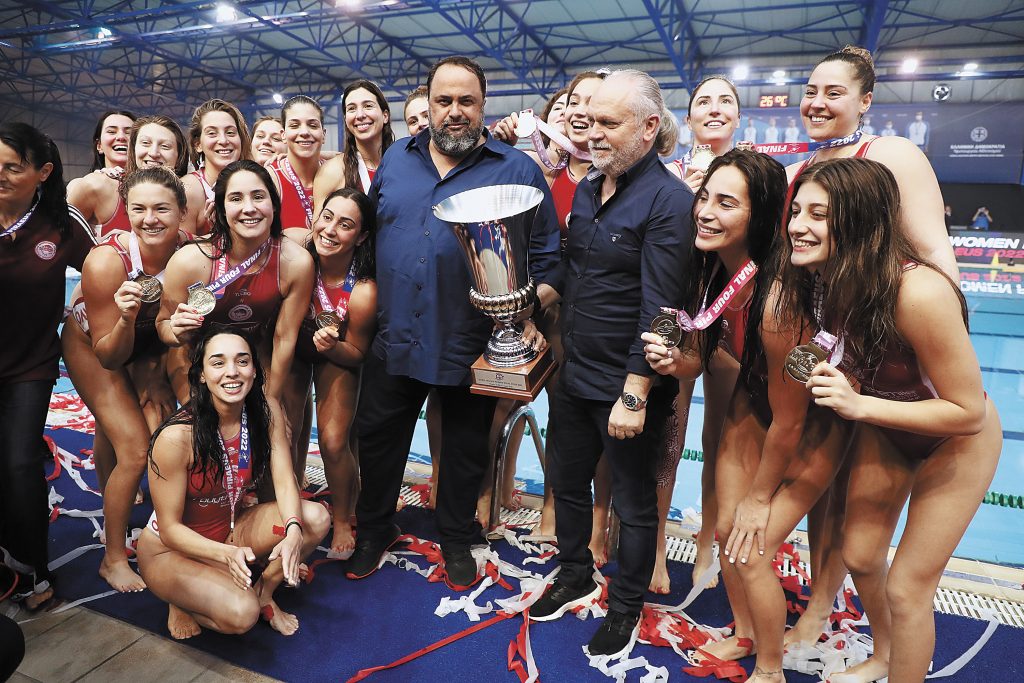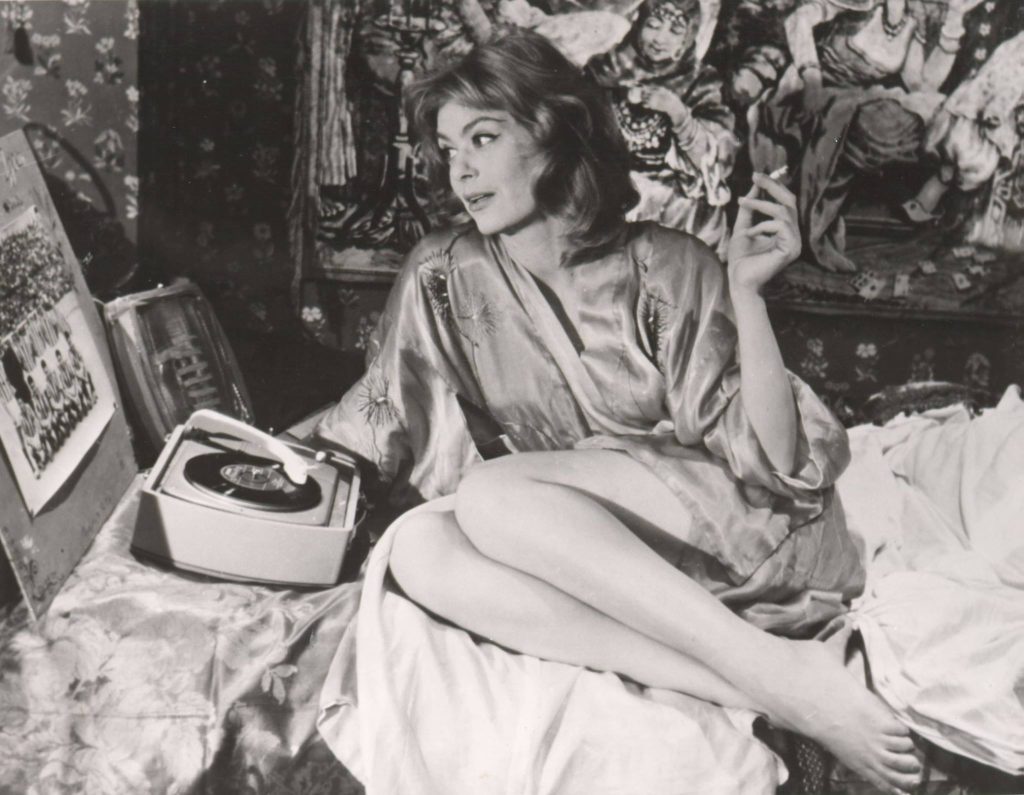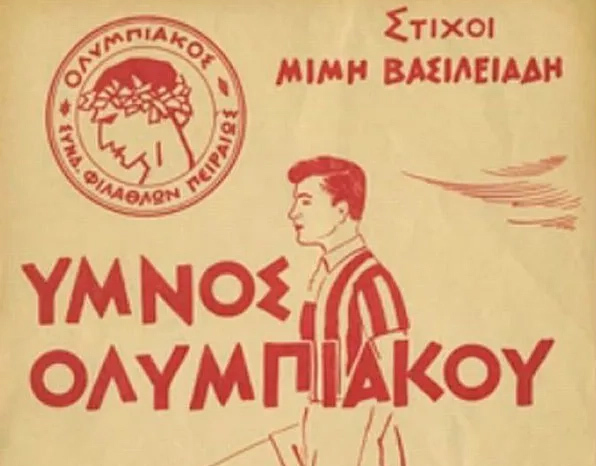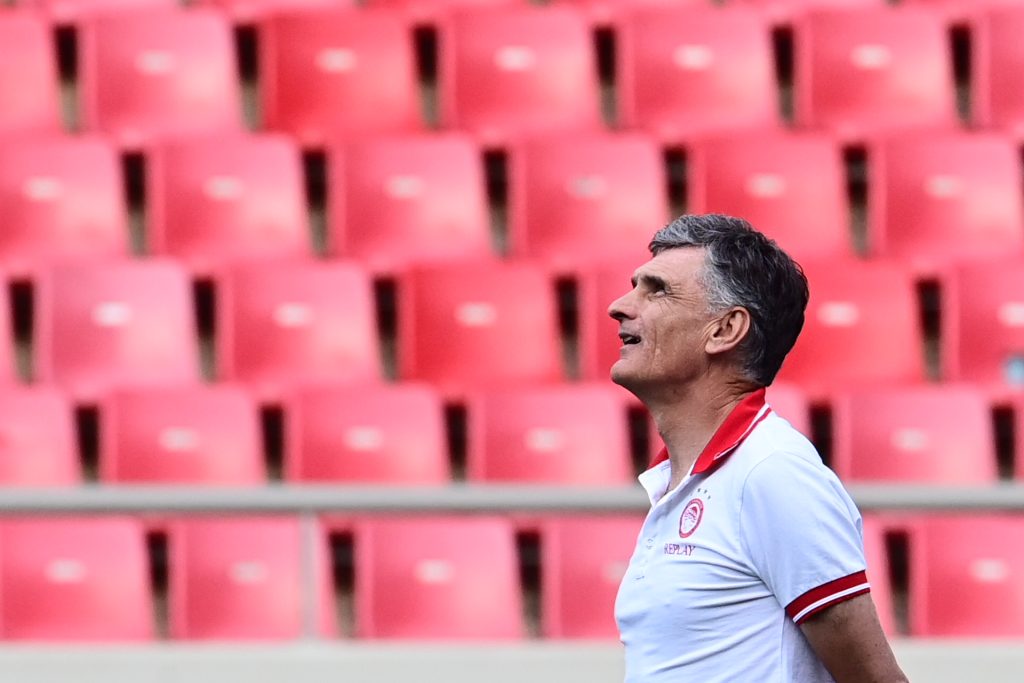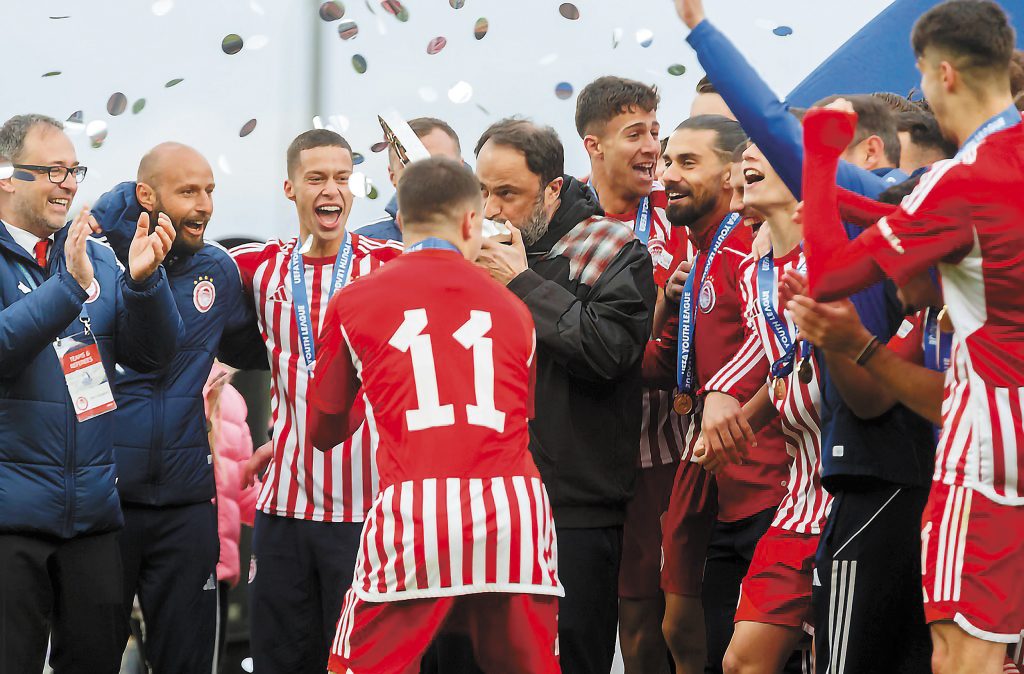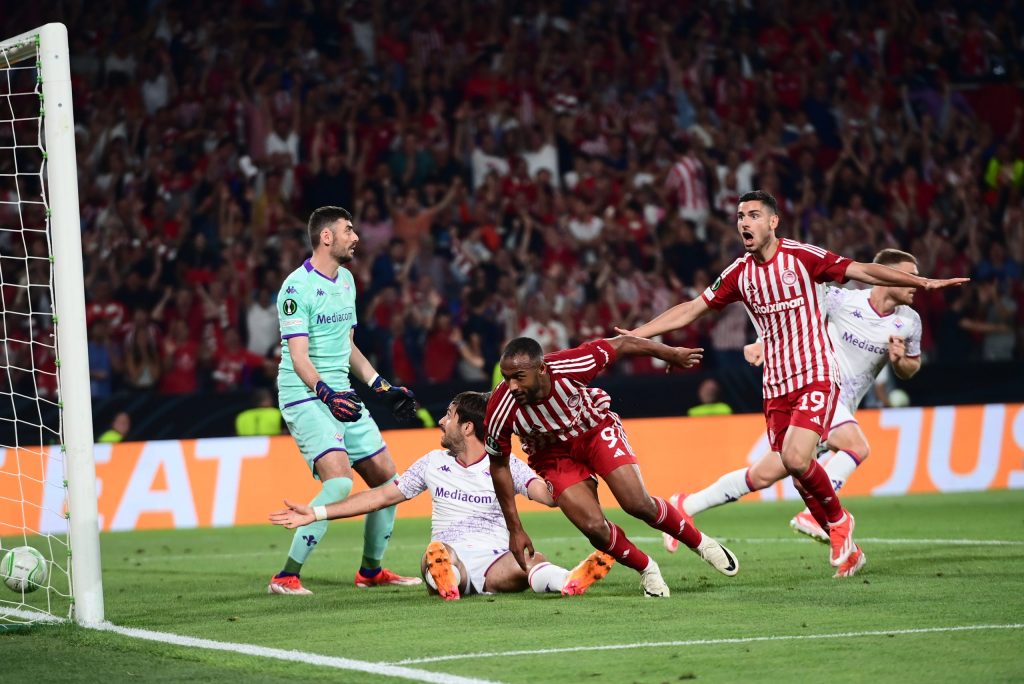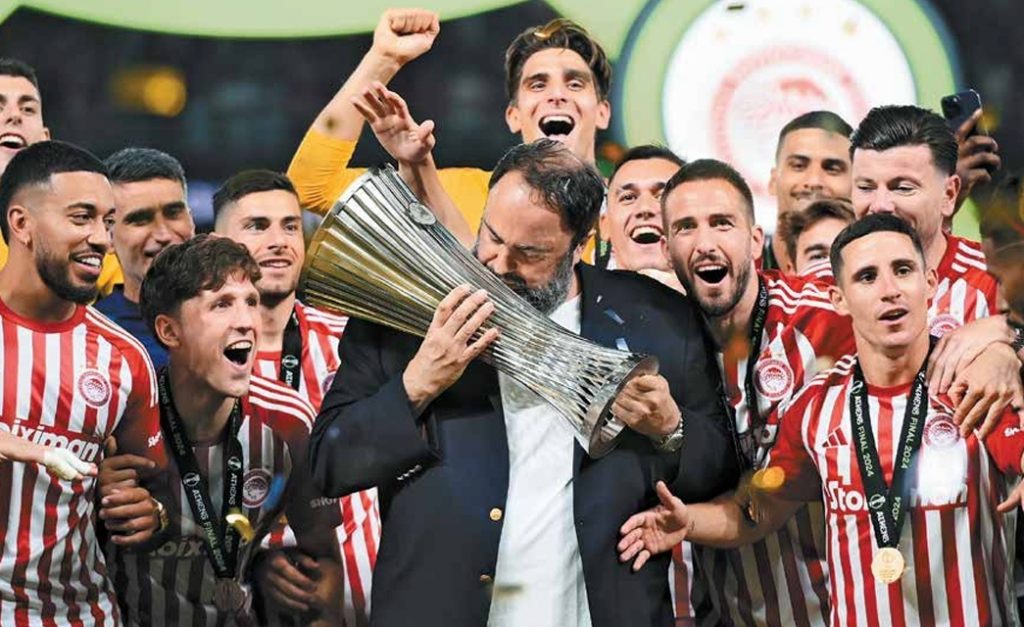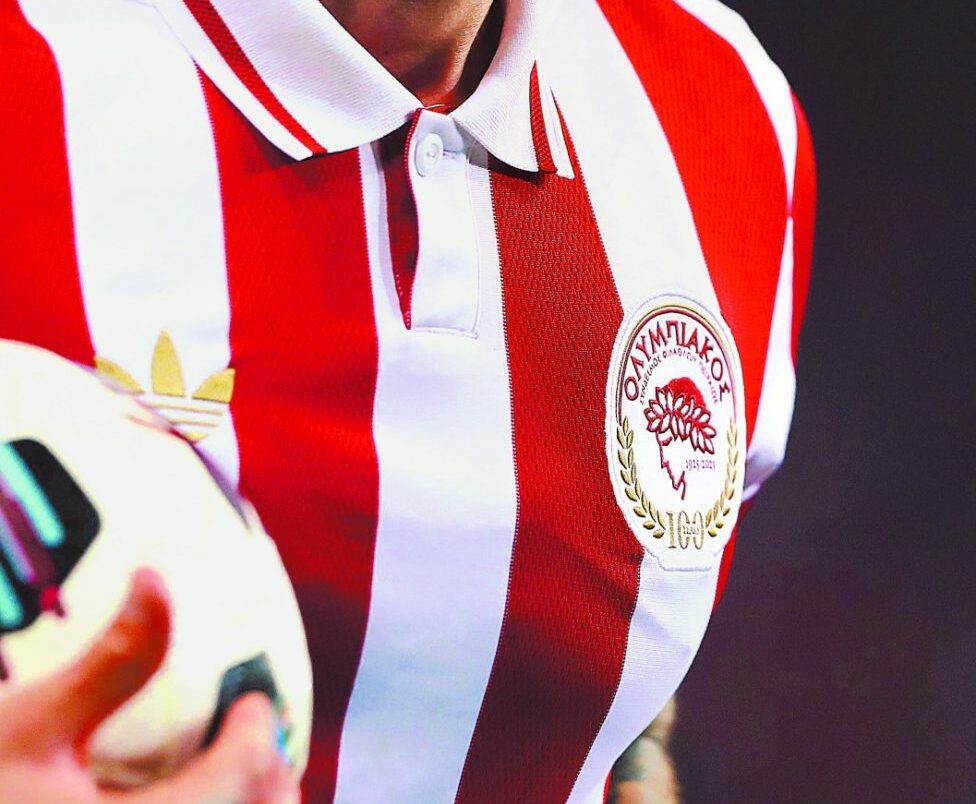The ceremony at the new Georgios Karaiskakis Stadium was staged with all the pomp and glamour it deserved. There was a lot at stake, public-relations-wise, for the Club. Edson Arantes do Nascimento, known to the world as Pelé, the “King of football”, in his No 10 jersey, was flanked by another two Brazilian greats: Rivaldo and Giovanni. Like two legends combined… Two demi-gods.
One Greek man, dressed smartly, and with grey hair belying his age, looked at him, the fabled Pele. The latter saw him looking and looked back. The first man went over to Pele. “Remember me?” -“Of, course I do! I still have your mark on my leg!”
It had been 44 years since that far-off afternoon in 1961. Back then, at 25, one was a stalwart defender of Olympiacos. The other, just 21, a “black diamond” who had “scorched” the World Cup in Sweden just three years before, and who was already a dazzling player capable of transforming football from a collective act into a one-man show. Of course, he would later become a synonym for the game.
Greece didn’t sleep that night in July, as people filled the streets from the port of Piraeus to Omonia Square in central Athens, carrying the red-and-white flags of Olympiacos
Pagioumtzis making music…
With all that under Pelé’s belt, having any recollection whatsoever of an opponent he’d happened to play against in his early days, and just once at that during a friendly in Greece, which was under-developed by global football standards at the time, verged on the bizarre. And yet, that afternoon in 2005, Pelé did remember Kostas Polychroniou. He really did. The reason is that there weren’t many who managed to shut him down over the course of an illustrious career. And ‘the Greek’, Polychroniou, was one of them. One of a very select few. That was a tremendous feather in his cap (and added to the repertoire of Greek slang: when an underdog comes out on top, we still say: “poor Pele’s mum’s in tears”); it also made him a ‘history maker’. The architect of a golden upset that will live on in Greek football’s collective memory forever…
The scoreboard on July 4, 1961, read Olympiacos-Santos, 2-1. And the bouzouki of Stratos Pagioumtzis, the heart of the legendary “Piraeus Quartet”, plucked out a rebetiko accompaniment for the glorious lyric:
“Olympiacos the great, Olympiacos the dream… who beat Santos, which is Pelé’s team!”
One time, they asked him how he did it. His reply? “I’d seen for myself that if you let Pelé into the game, you’ve already lost. Give him an inch, and he’s past you—right, left, any which way. So, I told myself I wouldn’t let him control a pass with his head, that I’d compete for every single ball. Either I won it, or no one did”.
Laying waste to Europe
When he explained this to Kiril Simonovski, the Olympiacos coach at the time, asking him to leave him free to mark the “king” (without any other on-field duties), it’s recalled that the Yugoslav replied with the inimitable: “Kostas, three players couldn’t pull that off together! But you’re welcome to try…” That is often how history gets written.
Polychroniou attended Santos’ training sessions in Greece to take notes, and, of course, there were the two friendlies that preceded the big game, against AEK (3-0, June 28) and Panathinaikos (3-2, June 30). The Olympiacos match was Santos’ last in Greece, but the friendly also marked the end of the Brazilians’ summer tour in search of glory and… dollars. The results to date? Eighteen matches played and just one defeat (in Belgium). Along the way, Santos had downed clubs such Bayern (3-2), Basel (8-2), Wolfsburg (6-3), Racing (6-1, 5-4), Lyon (6-2), Benfica (6-3), Juventus (2-0), Roma (5-0), Inter (4-1) and Karlsruhe (8-6).
“Football magicians,” was how the press described the visitors.
“A super-team, the best in the world”. The front-line duo of Coutinho and Pele attracted the most coverage, but the rest of the team were far from shabby: Laércio in goal, Getúlio, Mauro and Dalmo in defense; Zito, Lima and Mengálvio in midfield, and Dorval and Pepe completing the front line on that far-off 4th of July. So a super-team featuring the world’s top footballer, but without television coverage, the world didn’t get to see Santor or Pele work their magic. The most fans could look forward to an article in the newspaper. They read about the games, or they listened to them on the radio. And without an actual image, the team became literal giants in the fans’ imaginations—because fans’ sometimes have a tendency to magnify things).
Santos acquired almost mythic dimensions. Supernatural. Superhuman. Adding a sprinkling of lifestyle “gold dust” (yes, there’s nothing new under the sun) will blow the image up even more. Having hordes of journalists set up camp outside the Delphi Hotel where the team was staying, waiting for any scraps to come their way—a name, a word, a photo. Has Pelé woken up yet? Has Pelé eaten? Who does he consider the best team in Europe? His relationship with women? Marilyn Monroe or Brigitte Bardot? Did he like Vouliagmeni beach? And that girl at his side, who was she? That’s a small anthology of the articles published during Santos’ five-day stay in Greece…
Given all the above, Olympiacos’ good fortune has started to look more like a wish that just happened to come true. In fact, the team wasn’t even at its best. Their last two seasons had been trophy- and championship-free, as they transitioned from one golden era that was ending (that of the great ’50s team) to a new one that was gradually coming into being (under coach Bukovi, 1965-67). One thing kept the “fire” burning, that it was Olympiacos.

Kostas Polychroniou next to Pele, the “King of Football’, widely regarded as one of the greatest players of all time.
The sacrifice
It’s 9 a.m. on that great Tuesday. The spotlights are on, Ioannidis will be refereeing. The stands are packed, the excitement palpable—there are over 25,000 fans in attendance (officially, 22,868 with another 20,000 outside the ground), despite the pricey tickets (35 Drachmas at a time when the average monthly wage is 1,000 at most). The teams come onto the field. The fans go wild. The Olympiacos line-up is announced over the loudspeakers: Savvas Theodoridis under the goal posts; on defense, apart from Polychroniou, Nikos Kambolis, Mimis Stefanakos, Yango Simantiris; in midfield, Babis Kotridis (in the last game of his great career—what a farewell!) along with Sotiris Gavetsos, Kostas Papazoglou, Thanasis Bebis, and up front, Giorgos Sideris, known to the fans as “Fontakas”, and Antonis Poseidon. Who was missing? Ilias Rossidis. Injured in the Cup final against Panionios.
Kick-off. It’s not long before the first deep breath. Bebis, the “white Pelé” (who some were desperate to compare with the… original), is injured. What a blow: he leaves the field. Tasos Sourounis takes his place. Is that fate taking a hand?
The match resumes. And eight minutes later, at the 10-minute mark, the first “explosion”. Polychroniou’s cross, perfect. Poseidon’s shoot, on target. Laércio’s save, unsuccessful. GOAL!! The stadium erupts, and the fans start daring to believe. All the more so as the minutes tick down. Olympiacos has control of the game. Polychroniou isn’t giving Pelé an inch of space – playing “hard, but fair: I never kicked him”, he always said afterwards. Then comes the 43rd minute…
Kotridis passes to Gavetsos to his right. Gavetsos crosses to ‘Fontakas’. Getúlio blocks, but just outside the area, the ball falls at the feet of Sourounis— the player who was substituted for Bebis. He doesn’t think about it, just shoots. Boot and ball connect sweetly, sending the latter straight to the top corner. The goalkeeper can’t keep that one out… He doesn’t!
Half time, Olympiacos-Santos: 2-0! Incredible! Inconceivable! The crowd is ecstatic, spectators’ hearts are working overtime, and for one Olympiacos fan it’s too much to endure, as he’s taken from the stands to a waiting ambulance only to later succumb. The unfortunate fan is 60-year-old industrialist Nikos Kaloudis. They said his heart was overwhelmed by the emotion of the moment. And his “thread” of life was cut on that afternoon.
End it… It ended!
Olympiacos, on the other hand, withstood the pressure. Despite Zito reducing the deficit four minutes into the second half (49′). The team held their heads up high throughout the second half, though the battle was hard. The competition merciless. The unsportsmanlike behavior almost out of hand, with the crowd making their scorn crystal clear as the angry Brazilians, staring defeat in the face, switched to Plan B and set the delicacy of alegria do povo (the joy of the game) firmly to one side.
That was made crystal clear by an incident in the 60th minute: Sormani clashes with Kotridis. Coutinho lands a punch on the Greek player. Other players pile in (with Polychroniou holding Pele back, “to stop him getting involved—he was like a god to me!”, as the police struggle to remove the few fans who have invaded the pitch.
When order is restored, Coutinho has been sent off and the (bloodied) Kotridis has been replaced by Spetseris. What’s changed? Nothing! Aggravated and a player down, with Pele virtually… invisible, until he quits the field in the 82nd minute. No matter how hard Santos’ players seek an opportunity, they not only fail to come up with a solution, they’re lucky not to go 3-1 down when Sideris hits the post in the 75th minute!
Five minutes to go… Two minutes… “Blow the whistle, ref!” Game over! Two-One…
No one slept a wink in Greece that night.
The celebrations beggar description. In the stadium and beyond… The international news agencies send wires fizzing off to every continent, radio stations broadcast the news to the four winds, the world is taken aback.
In the press offices, the typewriters are on fire, clacking out the story about “the monumental effort by the premier Greek club”, which has “covered Greece in glory, elevating the nation to a true giant of football worldwide” (“Fos”) and about “our formidable aces” who “sent a shiver of emotion and pride through the nation”, forcing “Pele’s team, which has brushed teams aside across Europe, to suffer its first defeat when fielding its full forces” (“Sport Echo”).
No, Greece did not sleep that night in July. The nation poured out onto the streets instead, everywhere from Omonia down to the sea, to Pasalimani and Freatida. Delirious, people hang flags on their balconies and windows. They leap into fountains and the sea. They leave their lights on, pip their horns. And in the port, the ships’ claxons play hymns of greatness and triumph. And everywhere, a sea of red.
Two days later. Two photographs, cut out of newspapers, are stuck to the whitewashed walls of an entire country. In one, “Mimis Stefanakos the giant”, the “demigod”. In the other, making an informal victory lap on the shoulders of his teammates and fans, Polychroniou, “the man who shut down Pele”.
“Remember me?” – “Of course I do! I still have your mark.” But not on his leg. On his great, allegra soul…
